Pre-Conference Intensive Workshops 2025
Pre-Conference Intensive Workshops 2025
 |  |  |
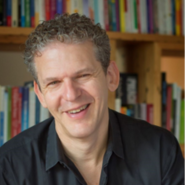 | 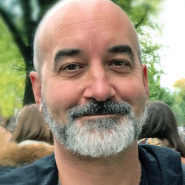 | 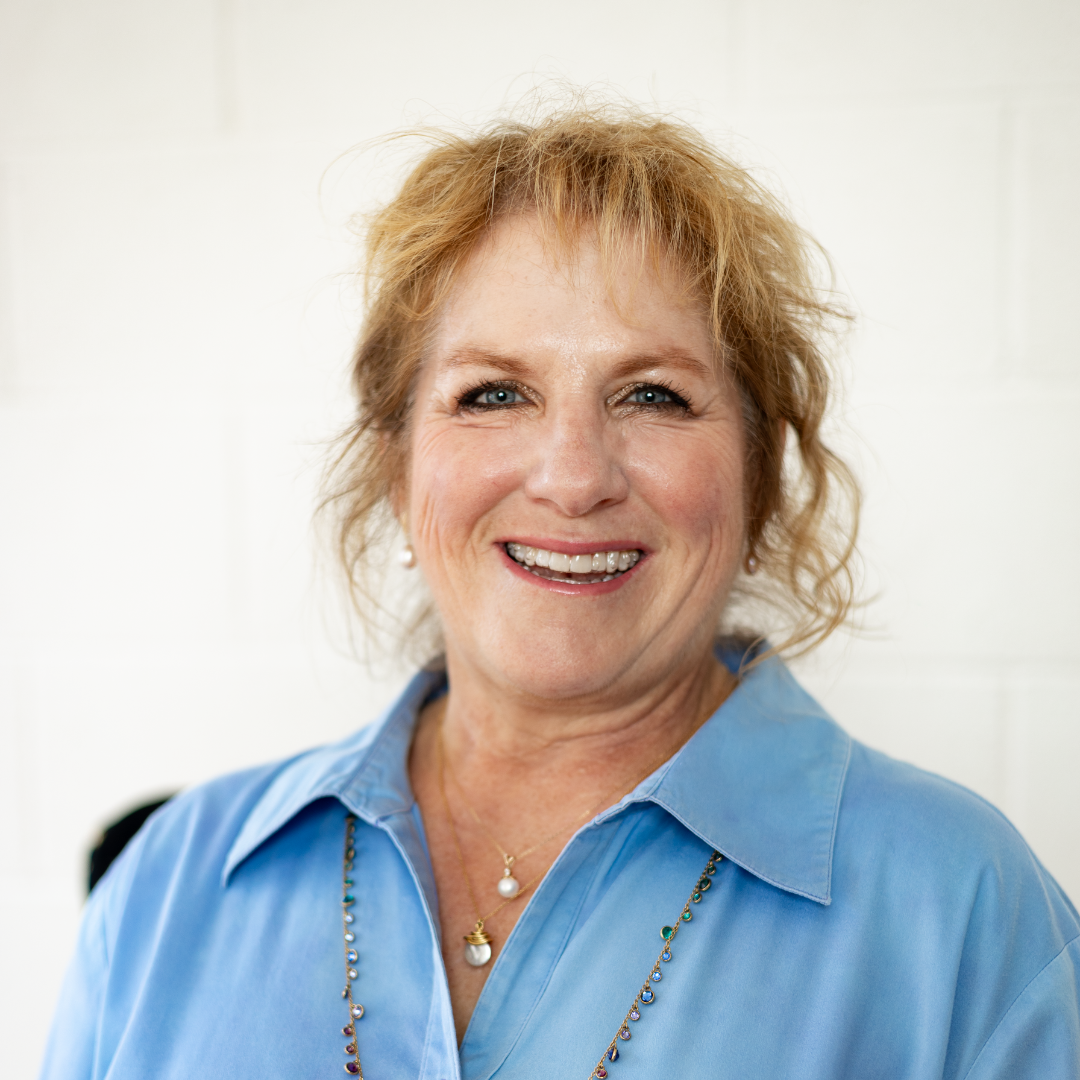 |
and many more....
What to Expect
The 2025 Pre-Conference Workshops offer exciting VIRTUAL and IN-PERSON opportunities that will engage therapists and researchers of any skill level. Combining therapy role-plays, experiential exercises, case presentations, data graphics, focused lectures, and small group discussions, you can expect high-quality training from ACBS Pre-Conference Workshops. Continuing Education credits are available.
In-Person Workshops
These workshops will be held the two days immediately preceding the ACBS World Conference 2025.
Tuesday, July 15 and Wednesday, July 16
8:30 a.m. - 4:45 p.m. Central Daylight Time - CDT
Location: Sheraton New Orleans
Contact Hours: 13 total
- Connecting with Meaning While Living with Moral Pain: A Workshop on ACT for Moral Injury (ACT-MI), Lauren Borges, Ph.D., Jacob Farnsworth, Ph.D., Sean Barnes, Ph.D.
- Process-Based Practice: Shaping Psychological Flexibility in Children, Adolescents, and Their Parents, Lisa Coyne, Ph.D., Sarah Cassidy, Ph.D.
- You Matter: Idionomic Biopsychosocial Pathways to Human Resilience, Steven C Hayes, Ph.D., Rick Hanson, Ph.D.
- Trauma-Focused ACT: Working With Body, Mind and Emotion, Russ Harris, M.B.B.S.
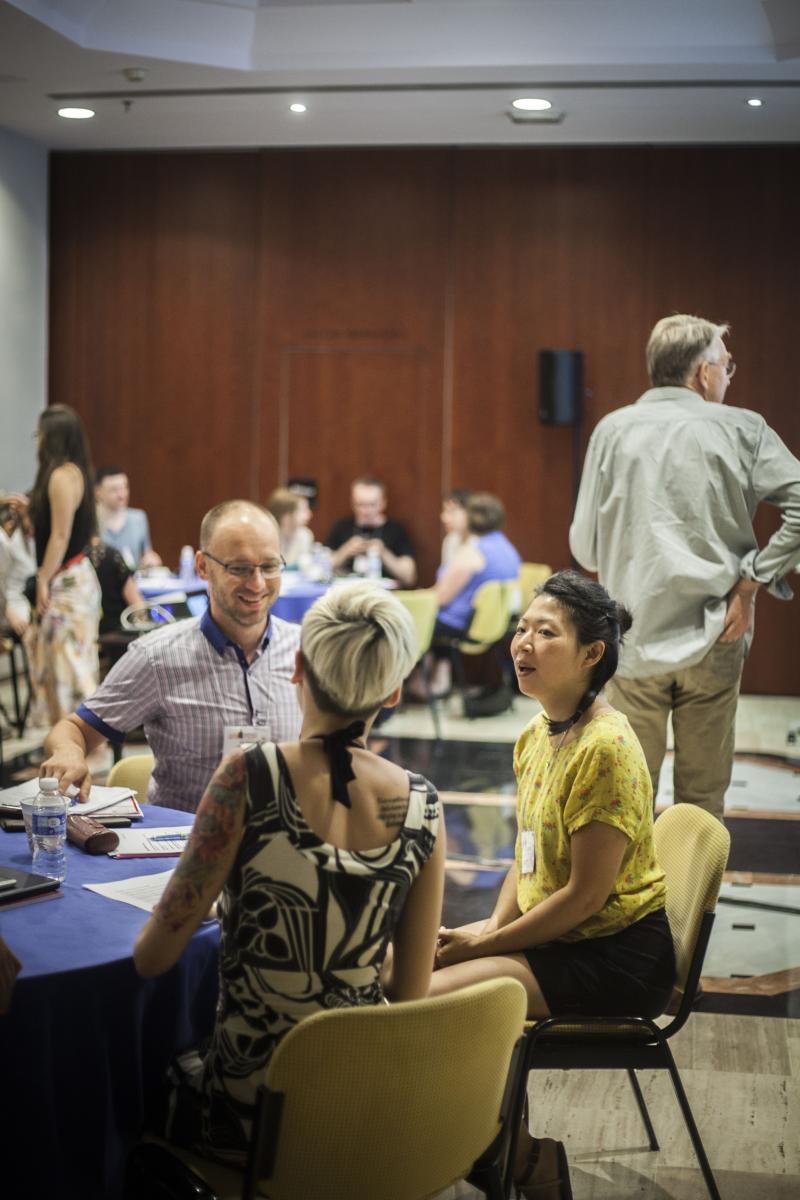 Mastering the heartbeat of change: applying core principles of change in contextual therapies, Niklas Törneke, M.D. and Rikke Kjelgaard, M. SC.
Mastering the heartbeat of change: applying core principles of change in contextual therapies, Niklas Törneke, M.D. and Rikke Kjelgaard, M. SC.- Mastering Compassion Focused Therapy (CFT) Now: A Process Based and Trauma Informed Approach to Practicing Compassion in Psychotherapy, Dennis Tirch, Ph.D., Laura Silberstein-Tirch, PsyD, Lauren Todd, Ph.D.
- Here, Now, and Between Us: Functional Analytic Psychotherapy and the Power of the Therapeutic Relationship, Mavis Tsai, Ph.D., Sarah Sullivan-Singh, Ph.D., Barbara Kohlenberg, Ph.D., Amanda Muñoz-Martínez, Ph.D., Matthew Skinta, Ph.D., ABPP
- The Heart of ACT: A Process-Based, Client-Centered Approach to Creating Meaning, Robyn Walser, Ph.D.
- Virtual Workshops - Friday, June 6 and Saturday, June 7
Format: LIVE online via Zoom. These workshops will not be recorded.
MORNING Workshops
8:00 a.m. to 12:00 p.m. UTC/GMT -5 (Central Daylight Time)
(8 hours total over two days; 7.5 total contact hours)Interpersonally Extending Acceptance and Commitment Therapy for Couples and Intimate Partners, Lou Lasprugato, M.A.
Now What? Moving Beyond the Basics and Increasing your Fluency in ACT, Miranda Morris, Ph.D., Shawn Costello Whooley, Psy.D. and Holly Yates, M.S., LCMHC (también en español)
AFTERNOON Workshops
2:00 p.m. - 6:00 p.m. UTC/GMT -5 (Central Daylight Time)
(8 hours total over two days; 7.5 total contact hours)
Staying prosocial as things fall apart, Paul Atkins, Ph.D., Rachel Gooen, MSW, Viveka Ramel, Ph.D., and Anna Castonguay, MA
- Focused Acceptance and Commitment Therapy: Increasing the Reach of Contextual Behavioral Science to Novel Settings and New Populations, Kirk Strosahl, Ph.D. and Patricia Robinson, Ph.D. (también en español)
Interpersonally Extending Acceptance and Commitment Therapy for Couples and Intimate Partners
Interpersonally Extending Acceptance and Commitment Therapy for Couples and Intimate PartnersInterpersonally Extending Acceptance and Commitment Therapy for Couples and Intimate Partners
Dates and Location of this VIRTUAL 2-Day Workshop:
VIRTUAL LIVE online via Zoom
Automated Zoom captioning and automated Zoom translation available.
Friday, June 6, 2025 and Saturday, June 7, 2025, 8:00 a.m. to 12:00 p.m. UTC/GMT -5 (Central Daylight Time)
Contact Hours: 7.5
Workshop Leaders: 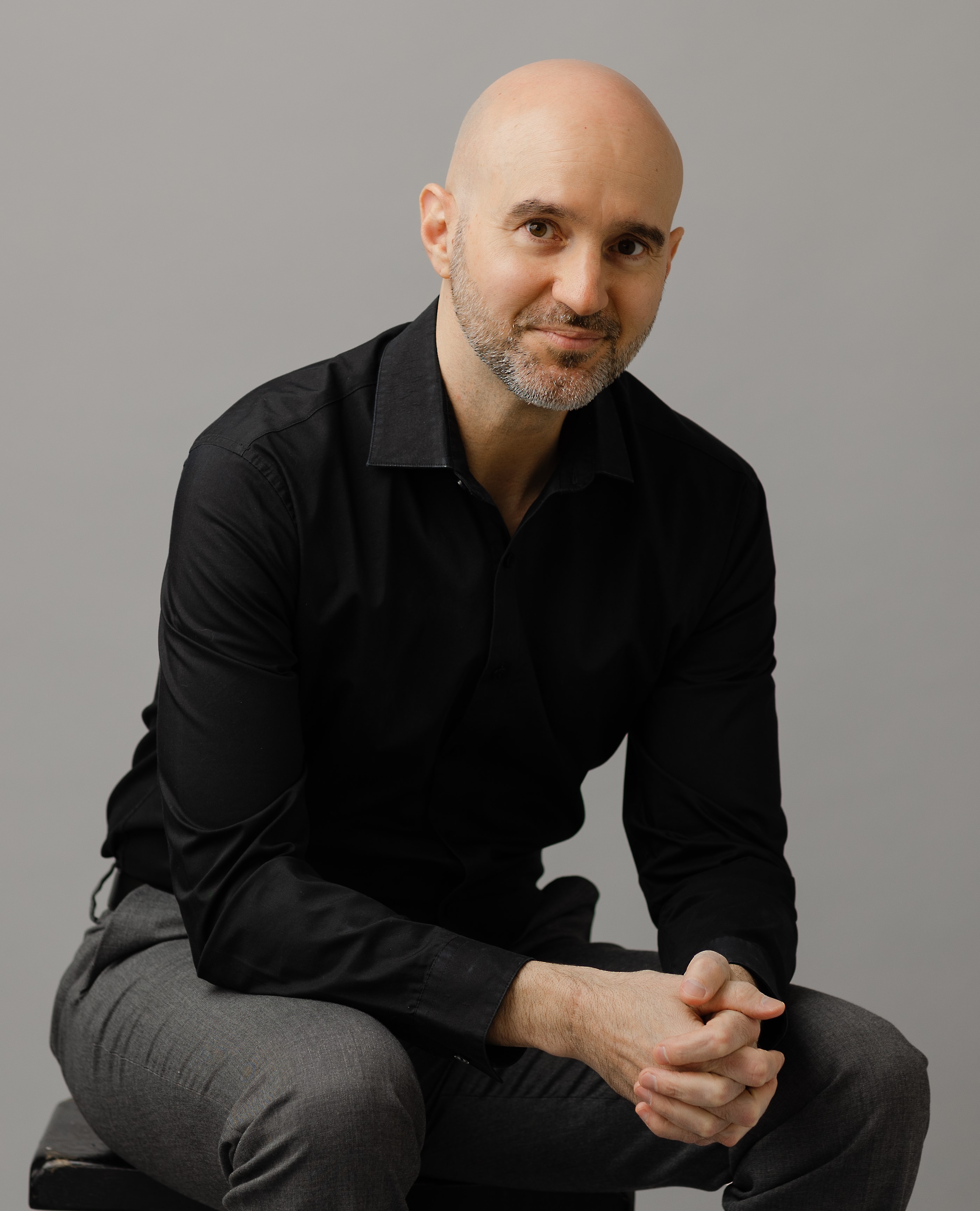
Lou Lasprugato, MFT, Peer-Reviewed ACT Trainer
Workshop Description:
Do you provide couples therapy or would like to consider offering this treatment modality? Are you curious about how acceptance and commitment therapy (ACT) can be extended interpersonally in a way that is sensitive to the psychosocial longings and stressors between intimate partners? Would you like to build clinical skills in multi-level functional assessment and process-based interventions for couples? If you answered “yes” to any of these questions, then you will likely find great value in attending this 8-hour (7.5 hr plus breaks) live-online workshop for practitioners who will learn how to “InterACT with Couples.”
While ACT has been extensively studied and utilized as an individual form of therapy, its application to couples therapy has been somewhat limited to a few notable publications (Harris, 2023; Lawrence, Cohn, & Allen, 2022; Lev & McKay, 2017) and a relatively small, but growing body of promising research (Ahmadzadeh, et al. 2019; Veshki, et al. 2017) suggesting comparable effectiveness of ACT with cognitive-behavioral couple therapy and integrative couples therapy, and in some regards with emotionally focused therapy (Ghahari, et al. 2021). ACT’s model of psychological flexibility, when extended interpersonally, can offer a unique lens to case conceptualization and functional analysis when examining patterns of interaction between intimate partners. What’s more, yearnings - deep, enduring longings or psychological needs, which are a recent addition to ACT’s theoretical base - are often the primary motivators influencing one or both partners seeking therapy. Individual and interpersonal yearnings compete for attention within relationships, as partners attempt to satisfy yearnings in unworkable (values-incongruent) ways that create conflict, tension, and disconnection. Combined with built-in survival mechanisms that surface when faced with a threat to ‘self’ or one’s relationship, partners can become trapped in contextual clash cycles that inadvertently reinforce suffering.
The workshop will introduce a reimagined ACT Hexaflex that situates yearnings as a core functional feature of an interpersonal psychological flexibility model. Participants will have a chance to experience the psychological flexibility processes extended interpersonally and conduct a couples intake interview with the ACT Matrix. A multi-level, process-based, functional analytic case conceptualization for couples that integrates psychological flexibility, attachment-based relating, and survival mechanisms, will serve as the basis for assessing and intervening on patterns of interaction. The functional relations that shape behavior and create contextual clashes between partners will be examined, including issues related to diversity and sociocultural factors. Participants will practice modeling, evoking, and reinforcing four functional classes of behavior, or foundational skills, that set the stage for meaningful change; this includes a critical process-oriented intervention of slowing down in-session patterns of interaction to allow for observation and tracking of interlocking behavioral contingencies. The workshop will include the following components: didactics, experiential exercises, video vignettes, demonstrations, dyadic and small group practice. As a bonus, participants will also get to learn the art of improv! Note: while the case examples and practice will be focused on intimate partners, most of the principles and processes presented in the course are applicable to any interpersonal context.
InterACT 8-hour workshop content:
Module 1: Yearnings / Interpersonal Flexibility
Module 2: The ACT Couples Matrix / Intake Interview
Module 3: Multi-Level Assessment / Case Conceptualization
Module 4: Shaping Four Foundational Skills
About the Workshop Leaders:
- Lou Lasprugato, MFT, Peer-Reviewed ACT Trainer
Lou Lasprugato is a psychotherapist and internationally recognized trainer in the field of psychology. He’s a licensed Marriage and Family Therapist, with private practices in both California and Virginia (United States), and Peer-Reviewed Trainer in Acceptance and Commitment Therapy (ACT) with the Association for Contextual Behavioral Science, for which he also serves as Chair of the Training Committee. Lou has worked as a psychotherapist in a variety of settings, including county-operated crisis intervention services with underserved populations; a mental health and substance abuse intensive outpatient program at Kaiser Permanente that he subsequently managed; and an integrative medicine program at Sutter Health. Lou has taught mindfulness meditation to health care practitioners and facilitated nearly one hundred training events on ACT and clinically-applied relational frame theory (RFT), as well as co-created courses on nutritional p sychology and integrative mental health treatment. Lou has also provided supervision to other behavioral/mental health professionals and students and continues to provide individual and group consultation on ACT and other contextual behavioral approaches. He earned his Master of Arts in Counseling Psychology, with a specialization in Holistic Studies from Lesley University, Cambridge, MA, following a career as a professional musician.
Following this workshop participants will be able to:
- Demonstrate how to extend the ACT core processes interpersonally within couples therapy
- Describe at least one experiential exercise designed to build a bridge of psychological flexibility between partners
- Explain the central role that yearnings play in couples therapy, including how individual yearnings compete for attention with interpersonal yearnings
- Formulate a functional analytic case conceptualization for couples that situates yearnings as drivers of behavior
- Explain how to facilitate a couples therapy intake interview utilizing the ACT Matrix to evoke awareness of painful private events, (shared) values, and overt behaviors
- Discriminate between behavior under aversive versus appetitive control within couples’ repertoires
- Explain how functional relations, influenced by sociocultural factors and driven by survival mechanisms, between partners can create and maintain contextual clash cycles
- Discuss how to conduct a multi-level process-based functional assessment that examines patterns of interaction within intimate relationships
- List features of the InterACT Assessment Zones that combine attachment-based relating, psychological flexibility processes, and survival mechanisms
- Explain how to shape four functional classes of behavior that can disrupt unworkable patterns of interaction and promote fulfillment within relationships
Target audience: Intermediate, Advanced, Clinical
Components: Didactics, experiential exercises, demonstrations, video vignettes, role plays
Topic Areas: Training, Clinical
Package Includes: A general certificate of attendance
CE Credit Hours Available (7.5 hours): CEs for psychologists, social workers (NASW type), counselors (NBCC type)
Connecting with Meaning While Living with Moral Pain: A Workshop on ACT for Moral Injury (ACT-MI)
Connecting with Meaning While Living with Moral Pain: A Workshop on ACT for Moral Injury (ACT-MI)Connecting with Meaning While Living with Moral Pain: A Workshop on ACT for Moral Injury (ACT-MI)
Dates and Location of this IN-PERSON 2-Day Workshop:
IN-PERSON at the Sheraton, New Orleans
Tuesday, July 15, 2025 from 8:30 a.m. to 4:45 p.m.
Wednesday, July 16, 2025 from 8:30 a.m. to 4:45 p.m.
Contact Hours: 13
Workshop Leaders: 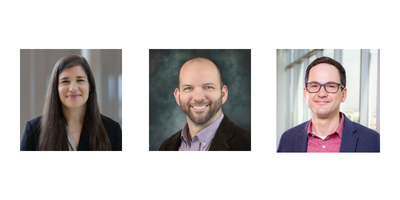
Lauren M. Borges, Ph.D.
Jacob K. Farnsworth, Ph.D.
Sean M. Barnes, Ph.D.
Workshop Description:
Moral distress is an ever-present reality of the human experience. In some cases, this distress stems from the consequences of our own actions, or the actions of those we trusted. We are increasingly confronted with news of other’s moral violations through media outlets and social platforms, thereby heightening our awareness of the moral distress we face. While all humans experience moral distress, exposure to high stakes contexts that threaten safety and social belonging may be more likely to result in clinically significant impacts. But recovery is possible. As a client who graduated from Acceptance and Commitment Therapy for Moral Injury (ACT-MI) shared, “I can live life again. I can go outside. I can spend time with my kids. I can be a better mom. I thank God every day that I got to be a part of this.”
High stakes experiences evoking moral distress, “potentially morally injurious events” (PMIEs), can include healthcare work, war, domestic violence, sexual assault, racism, political violence, experiences of journalists, terrorism, school shootings, life-threatening impacts of climate change, infidelity, homophobia, or similar events [1-6]. After a PMIE, it is common that individuals experience painful moral emotions (e.g., guilt, shame, contempt, anger, disgust) and morally-focused cognitions (e.g., blame directed at the self or others). While these responses can be evolutionarily and often socially adaptive, they can also be profoundly distressing. Understandably, when people experience painful moral emotions and cognitions they may go to great lengths to avoid or control them. Moral injury emerges when efforts to control moral pain significantly interfere with social, psychological, and spiritual functioning [7-8]. Extreme behaviors like suicidal actions and substance use are common responses to avoid or control moral pain. Similarly, symptoms of PTSD and depression, such as isolation, are often ways to avoid or manage moral pain. Given the widespread impact of moral distress and its significant consequences, it is essential for clinicians to develop skills to address and treat moral injury effectively.
Acceptance and Commitment Therapy for Moral Injury (ACT-MI) is a promising approach to working with moral pain and intervening on moral injury [7-9]. ACT-MI is an innovative, process-based, and transdiagnostic 15-session hybrid group (12-group psychotherapy sessions) and individual psychotherapy (3-individual case conceptualization sessions) where individuals learn new strategies to hold their moral pain while living their values. Results from a clinical trial (N = 74 participants) will be presented, suggesting that ACT-MI participants experienced clinically significant change in psychosocial functioning and found the intervention to be highly acceptable. Qualitative interviews suggest that skills supporting mindfulness, perspective taking, and living values were central to the transformative impacts of ACT-MI.
Day 1 of the workshop will begin with an exploration of data from the ACT-MI clinical trial. Case conceptualizing will provide a process-based framework for intervention where participants will learn strategies from ACT-MI designed to disrupt the behaviors maintaining moral injury and facilitate new learning in the presence of moral pain.
Participants will be invited to explore their own moral pain and related behaviors as they are guided through the arc of the ACT-MI intervention.
Day 2 of the workshop will continue the exploration of the 15-session ACT-MI intervention by bringing more depth, fluency, and flexibility for applying skills to engage with moral pain while staying connected to a sense of meaning and purpose. New experiential exercises and metaphors will be introduced, and case conceptualizing will be revisited to disrupt the pathways maintaining moral injury from different angles.
Across the workshop, participants will engage in experiential exercises at individual and group levels to practice skills to hold moral pain flexibly and connect with values. Individually, participants will be invited to apply ACT-MI to holding their own moral pain. In small groups they will have the opportunity to practice role plays and real plays as client and therapist applying ACT-MI skills to their “client’s” moral distress. Workshop participants will also connect with the social functions of moral emotions as a community through experiential exercises in a large group.
- References
- Borges, L. M., Holliday, R., Barnes, S. M., Bahraini, N. H., Kinney, A. R., Forster, J. E., & Brenner, L. A. (2021). A longitudinal analysis of the role of potentially morally injurious events on COVID-19 related psychosocial functioning among healthcare providers. PLOS ONE. doi: 10.1371/journal.pone.0260033
- Borges, L. M., Desai, A., Barnes, S. M., & Johnson, J. P. S. (2022). The role of social determinants of health in moral injury: Implications and future directions. Current Treatment Options in Psychiatry, 9(2), 202-214. doi:10.1007/s40501-022-00272-4
- Currier, J. M, McDermott, R. C., Farnsworth, J. K., & Borges, L. M. (2019). Temporal associations between moral injury and PTSD symptom clusters in military veterans. Journal of Traumatic Stress, 32(3), 382-392. doi:10.1002/jts.22367
- Desai, A., Holliday, R., Wallis, M., Thornewill, A., Bahraini, N. H., & Borges, L. M.* (2023). In the wake of Dobbs v. Jackson Women’s Health Organization: Policy Changes as a context for moral injury development. Obstetrics and Gynecology, 141(1), 15-21. doi:10.1097/AOG.0000000000005009
- Fulton, T., Lathan, E. C., Karkare, M. C., Guelfo, A., Eghbalzad, L., Ahluwalia, V., Ely, T. D., Turner, J. A., Turner, M. D., Currier, J. M., Mekawi, Y., & Fani, N. (2024). Civilian Moral Injury and Amygdala Functional Connectivity During Attention to Threat. Biological psychiatry. Cognitive neuroscience and neuroimaging, 9(1), 112–120.
- Henritze, E., Goldman, S., Simon, S., & Brown, A. D. (2023). Moral injury as an inclusive mental health framework for addressing climate change distress and promoting justice-oriented care. The Lancet. Planetary health, 7(3), e238–e241. doi:10.1016/S2542-5196(22)00335-7
- Borges, L. M., Barnes, S. M., Farnsworth, J. K., Drescher, K. D., & Walser, R. D. (2022). Case conceptualizing in Acceptance and Commitment Therapy for Moral Injury (ACT-MI): An active and ongoing approach to understanding and intervening on moral injury. Frontiers in Psychiatry, 13, 1-14. doi:10.3389/fpsyt.2022.910414
- Farnsworth, J. K., Drescher, R. D., Evans, W., & Walser, R. D. (2017). A functional approach to understanding and treating military-related moral injury. Journal of Contextual Behavioral Science, 6(4), 391-397. doi:10.1016/j.jcbs.2017.07.003
- Borges, L. M. (2019). A Service Member’s experience of Acceptance and Commitment Therapy for Moral Injury (ACT-MI): “Learning to accept my pain and injury by reconnecting with my values and starting to live a meaningful life.” Journal of Contextual Behavioral Science, 13, 134-140. doi:10.1016/j.jcbs.2019.08.002
About the Workshop Leaders:
- Lauren M. Borges, Ph.D.
Lauren M. Borges, Ph.D. is a clinical research psychologist at the Rocky Mountain Mental Illness Research, Education, and Clinical Center (MIRECC) for suicide prevention. She holds an academic appointment of Associate Professor in the Department of Psychiatry at the University of Colorado School of Medicine. She is a consultant for VA's National Suicide Risk Management Consultation Program. She is federally funded to investigate different applications of Acceptance and Commitment Therapy for moral injury and for suicidal behavior among Veterans and health care providers. She is a co-author of Acceptance and Commitment Therapy for Moral Injury (ACT-MI) and clinically specializes in the treatment of moral injury and suicidal behavior. She has written numerous peer reviewed journal articles on moral injury, ACT, and suicide prevention and has provided many workshops at national and international conferences on ACT-MI, functional analysis, an d ACT for suicide prevention.
- Jacob Farnsworth, Ph.D.
Jake Farnsworth, Ph.D. is the Psychology Discipline Lead and Psychology Internship Training Director for VA Eastern Colorado Health Care System. He is an instructor with the Department of Psychiatry at the University of Colorado School of Medicine. He is a co-author of Acceptance and Commitment Therapy for Moral Injury (ACT-MI) and has written numerous articles and book chapters on the subject and related topics. Clinically, Dr. Farnsworth specializes in the intersection of trauma-related disorders, substance use, and military-related moral injury.
- Sean Barnes, Ph.D.
Sean M. Barnes, Ph.D. is a licensed clinical psychologist in Aurora, Colorado with expertise in suicide risk management and the use of Acceptance and Commitment Therapy (ACT) for depression, moral injury, and vital living among individuals at risk of suicide. Dr. Barnes is an Associate Professor in the Department of Psychiatry at the University of Colorado Anschutz Medical Campus and clinical research psychologist with the Department of Veterans Affairs Rocky Mountain Mental Illness Research, Education, and Clinical Center (MIRECC) for Veteran Suicide Prevention. Dr. Barnes has extensive experience providing consultation and supervision on suicide risk management and ACT, has authored numerous peer reviewed articles and book chapters, and has been providing workshops on suicide prevention since 2015.
Following this workshop participants will be able to:
- Describe populations who could benefit from moral injury treatment
- Discuss data supporting ACT-MI
- Describe how to conceptualize moral injury using principles from ACT-MI and contextual behavioral science
- Analyze the workability of avoiding and controlling moral pain
- Using the ACT-MI conceptual framework, apply procedures from ACT-MI to create a context for holding moral pain through the observer self
- Support clients in building present moment awareness and the ability to hold moral pain without becoming consumed by it.
- Define the relationship between moral pain and values as two sides of the same coin.
- Practice holding morally painful memories from the perspective of an observer who has but is not defined by these memories
- Practice holding sweet, cherished memories from an observer perspective as the place where memories occur
- Explain how to guide clients in building patterns of behavior informed by their values.
*Note: Kent D. Drescher, Ph.D. and Robyn D. Walser, Ph.D. are ACT-MI authors and will contribute to the workshop planning, but will not be presenting at the proposed pre-conference workshop.
Target audience: Beginner, Intermediate, Advanced, Clinical, Research
Components: Conceptual analysis, Literature review, Original data, Experiential exercises, Didactic presentation, Case presentation, Role play
Topic Areas: Clinical
Package Includes: A general certificate of attendance
CE Credit Hours Available (13 hours): CEs for psychologists, social workers (NASW type), counselors (NBCC type)
Focused Acceptance and Commitment Therapy: Increasing the Reach of Contextual Behavioral Science to Novel Settings and New Populations
Focused Acceptance and Commitment Therapy: Increasing the Reach of Contextual Behavioral Science to Novel Settings and New PopulationsFocused Acceptance and Commitment Therapy: Increasing the Reach of Contextual Behavioral Science to Novel Settings and New Populations
Dates and Location of this VIRTUAL 2-Day Workshop:
VIRTUAL LIVE online via Zoom
Live, simultaneous translation into Spanish available (courtesy of ACBS Argentino, Colombia, México-Sur, and Perú Chapters)
Traducción simultánea en vivo al español (cortesía de ACBS Argentino, Colombia, México-Sur y Perú Capitulos)
Friday, June 6, 2025 and Saturday, June 7, 2025, 2:00 p.m. - 6:00 p.m. UTC/GMT -5 (Central Daylight Time)
Contact hours: 7.5
Workshop Leaders: 
Kirk Strosahl, Ph.D.
Patricia Robinson, Ph.D.
Workshop Description:
Clinicians in diverse practice settings all over the world are challenged to find ways to address the increasing number of people needing behavioral health services. Increasing, behavioral health clinicians are working in non-traditional mental health settings (e.g., schools, primary care clinics, jails, and nursing homes) where assessments and interventions need to be brief, targeted, and support rapid improvements in functioning. nursing homes, etc.). This workshop is for those clinicians who want to acquire knowledge and skills that help them improve access to the people they serve and deliver engaging and effective services.
This two-session virtual workshop introduces participants to Focused Acceptance and Commitment Therapy (FACT). Focused ACT or FACT is a psychotherapeutic approach developed for delivery to children, adults, and families in individual and group formats. This approach encourages clinicians to see people in a timely manner, often on the same day of their request. Visits are short and target the problem identified by the person and tailored to assist them with improved functioning in key roles. Many people prefer accessible, brief, practical services, so the FACT approach helps the clinician see a wider range of people, particular those that often face many barriers to healthcare.
The presenters provide an overview of the Three FACT Pillars of Psychological Flexibility and then introduce tools used in FACT practice (e.g., the Contextual Interview, the Four Square Tool, the Pillars Assessment Tool, and the Pillars Intervention Guide). Additionally, participants will view and practice a simple approach to organizing a FACT visit, known as the CARE approach. Presenters will also provide a FACT Competency Self-Assessment Tool for participants to use after the workshop in tracking progress in growing their “FACT Practice Competencies”.
About the Workshop Leaders:
- Kirk Strosahl, Ph.D.
Dr. Strosahl is a co-founder of Acceptance and Commitment Therapy and, together with Dr. Patti Robinson and Thomas Gustavsson MsC, developed Focused Acceptance and Commitment Therapy (FACT). FACT is a brief therapy approach based in ACT that can be delivered in relatively few sessions,, where called for, and is an ideal approach for clinicians who are practicing in under-resourced contexts or in non-traditional healthcare settings where brief interventions are the rule rather than the exception. Dr. Strosahl is also a pioneering member of the movement to integrate FACT trained behavioral health clinicians into health care settings across the world . He has authored several books on the use of ACT as a brief intervention framework both in traditional clinical practice and in primary care. He has conducted workshops on FACT world-wide. He is known for his practical, clinician oriented approach to ACT and FACT, and has often been referred to as the "hands of ACT".
Early in his career progression, Dr. Strosahl received clinical training from the progenitors of such brief therapies as Solution Focused Brief Therapy, Problem Focused Brief Therapy, Single Session Therapy and Narrative Therapy. His contributions to the development of the ACT model include integrating brief and strategic intervention perspectives into the ACT approach. Dr. Strosahl worked as a practicing clinician in a brief therapy clinic from 1985 until 1991, at which time he began delivering brief interventions in the primary care context. For approximately 20 years, he provided brief, integrated healthcare interventions alongside primary care team members. Dr. Strosahl has conducted FACT workshops around the world, and has also authored several books, in collaboration with Dr. Robinson, on the application of FACT in clinical practice.
- Patricia Robinson, Ph.D.
Dr. Robinson, Ph.D., is currently the Director of Training and Program Evaluation for Mountainview Consulting Group (www.Mtnviewconsulting.com) (winner of an APA Presidential Innovative Practice Award). She received the Don Bloch Award for excellence in integrated care in 2023. Dr. Robinson is co-founder of the Primary Care Behavioral Health model and Focused Acceptance and Commitment Therapy. She provides consultation and training services on FACT both nationally and internationally and is committed to improving access to healthcare services and to realization of health equity. Earlier in her career, she worked as a researcher and clinician for Group Health Cooperative in Seattle, WA and as a Behavioral Health Consultant for Yakima Valley Farm Workers Clinic in Toppenish, WA. She has authored many articles, book chapters and books. With Jeff Reiter, she has recently completed the 3rd Edition of Behavioral Consultation and Primary Care: A G uide to Integrating Services. Dr. Robinson is the architect of a New Zealand healthcare initiative to embed FACT trained clinicians in general practice settings across the country. System level data show that her approach has eliminated long-standing healthcare disparities between Maori/Pacific Islanders and individuals of European descent. She currently lives in the Willamette Valley of Oregon with her partner and their dogs, Mac and Molly.
Following this workshop participants will be able to:
1. Describe the FACT approach to behavior change.
2. Define the FACT Pillars of Psychological Flexibility.
3. List and describe tools often used in a FACT practice (e.g., the Contextual Interview,
the Four Square Tool, the Pillars Assessment Tool, and the Pillars Intervention Guide).
4. Plan and organize a visit in alignment with the FACT CARE approach.
5. Use the FACT Competency Self-Assessment Tool to identify skills and knowledge, and
develop a post-workshop learning plan.
Target audience: Beginner, Intermediate, Advanced, Clinical
Components: Conceptual analysis, Literature review, Original data, Experiential exercises, Didactic presentation, Case presentation, Role play
Topic Areas: Clinical, Training
Package Includes: A general certificate of attendance
CE Credit Hours Available (7.5 hours): CEs for psychologists, social workers (NASW type), counselors (NBCC type)
Terapia de Aceptación y Compromiso Focalizada: Ampliando el Alcance de la Ciencia Conductual Contextual a Nuevos Entornos y Poblaciones Nuevas
Fechas y ubicación de este taller VIRTUAL de 2 días:
VIRTUAL taller en línea via Zoom
Traducción simultánea en vivo al español (cortesía de ACBS Argentino, Colombia, México-Sur y Perú Capitulos)
Fechas: Viernes 6 y sábado 7 de junio de 2025, 2:00 p.m. - 6:00 p.m. UTC/GMT -5 (Central Daylight Tim
Horas de contacto: 7.5
Facilitadores del taller:
Kirk Strosahl, Ph.D.
Patricia Robinson, Ph.D.
Descripción del taller:
Los profesionales de salud mental en todo el mundo enfrentan el desafío de atender a un número creciente de personas que necesitan servicios de salud conductual. Cada vez más, estos profesionales trabajan en entornos no tradicionales de salud mental (por ejemplo, escuelas, clínicas de atención primaria, cárceles y hogares de cuidado), donde las evaluaciones e intervenciones deben ser breves, enfocadas y efectivas para mejorar el funcionamiento de manera rápida.
Este taller está dirigido a clínicos que desean adquirir conocimientos y habilidades para mejorar el acceso de sus servicios y ofrecer atención eficaz y atractiva en diversos contextos.
Este taller virtual de dos sesiones presenta la Terapia de Aceptación y Compromiso Focalizada (FACT, por sus siglas en inglés). FACT es un enfoque psicoterapéutico desarrollado para ser aplicado con niños, adultos y familias, tanto en formato individual como grupal. Promueve la atención oportuna —a menudo el mismo día en que se solicita— mediante visitas breves que se enfocan en el problema identificado por la persona, con el objetivo de mejorar su funcionamiento en roles clave.
Muchas personas prefieren servicios accesibles, breves y prácticos. Por eso, el enfoque FACT permite a los profesionales atender a una gama más amplia de personas, especialmente aquellas que suelen enfrentar barreras importantes para acceder a la atención.
Durante el taller, los presentadores ofrecerán una visión general de los Tres Pilares de la Flexibilidad Psicológica en FACT, y presentarán herramientas utilizadas en su práctica, como:
- La Entrevista Contextual
- La Herramienta de los Cuatro Cuadrantes
- La Herramienta de Evaluación de los Pilares
- La Guía de Intervención basada en los Pilares
También se enseñará un enfoque simple para organizar una sesión FACT, conocido como el modelo CARE. Además, se proporcionará una herramienta de Autoevaluación de Competencias en FACT, para que los participantes puedan seguir desarrollando sus habilidades después del taller.
- Al finalizar este taller, los participantes serán capaces de:
Describir el enfoque FACT para el cambio de conducta. - Definir los Pilares de la Flexibilidad Psicológica en FACT.
- Enumerar y describir las herramientas comúnmente utilizadas en la práctica FACT (por ejemplo, la Entrevista Contextual, la Herramienta de los Cuatro Cuadrantes, la Herramienta de Evaluación de los Pilares y la Guía de Intervención basada en los Pilares).
- Planificar y organizar una sesión alineada con el enfoque CARE de FACT.
- Utilizar la Herramienta de Autoevaluación de Competencias en FACT para identificar habilidades y conocimientos, y desarrollar un plan de aprendizaje posterior al taller.
Público objetivo: Principiante, Intermedio, Avanzado, Clínico
Componentes del taller: Análisis conceptual, Revisión de literatura, Datos originales, Ejercicios experienciales, Presentación didáctica, Presentación de casos, Juegos de rol
Áreas temáticas: Clínica, Capacitación
Incluye: Certificado general de participación
Here, Now, and Between Us: Functional Analytic Psychotherapy (FAP) and the Power of the Therapeutic Relationship
Here, Now, and Between Us: Functional Analytic Psychotherapy (FAP) and the Power of the Therapeutic RelationshipHere, Now, and Between Us: Functional Analytic Psychotherapy (FAP) and the Power of the Therapeutic Relationship
Dates and Location of this IN-PERSON 2-Day Workshop:
IN-PERSON at the Sheraton, New Orleans
Tuesday, July 15, 2025 from 8:30 a.m. to 4:45 p.m.
Wednesday, July 16, 2025 from 8:30 a.m. to 4:45 p.m.
Contact Hours: 13 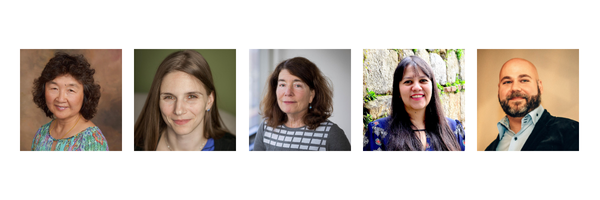
Workshop Leaders:
Mavis Tsai, Ph.D.
Sarah Sullivan-Singh, Ph.D.
Barbara Kohlenberg, Ph.D.
Amanda Muñoz Martínez. Ph.D.
Matthew D. Skinta, Ph.D., ABPP
Workshop Description:
We are offering this workshop in memory of beloved FAP co-founder, Bob Kohlenberg. Whether you are new to FAP or are an advanced practitioner, this workshop aims to cultivate your ability to harness the wellspring of therapeutic opportunity available within each unique relationship we create with our clients, and to take you to the next level of understanding in the application of FAP’s five transformative rules.
This workshop will focus on how you can intensify the therapeutic relationship by transforming it into an in-vivo, in-session laboratory in which you invite your clients to attempt new, more effective behaviors in service of their values and goals. In short, we encourage clients to practice, “right here, right now,” behaviors that are functionally equivalent to those they wish to implement in their lives outside of session. Because clients emit new behaviors in your presence, they benefit from the enhanced reinforcement of your immediate and genuine responding. Hence, increasing your own self-awareness, courage, and judiciousness in how you share your authentic self and emotional vulnerability allows you to augment the potency of your in-the-moment responses to clients.
We will weave together essential didactic elements of theory, recorded segments of therapy sessions, demonstrations, experiential exercises (balanced to address both clinical and personal development), real-plays with peers in small groups, ethical considerations, and a collection of FAP-consistent therapeutic tools and resources for you to take home. Of note, we will encourage you to be vulnerable in revealing yourself to the extent that it supports your learning and development, both personally and professionally, and with consideration of your needs and limits within the workshop setting.
Our goal is that you will leave the workshop with a deepened awareness of yourself, an awakened excitement about the possibilities of the therapy relationship, and an enlivened commitment to igniting it with each of your clients.
About the Workshop Leaders:
- Mavis Tsai, Ph.D.
Mavis Tsai, Ph.D., co-originator of FAP, is a clinical psychologist and senior research scientist at University of Washington’s Center for Science of Social Connection. She is the co-author of five books on FAP (some of which have been translated into Portuguese, Spanish, Japanese, Italian, Korean and Persian), and over 75 articles and book chapters. She is an ACBS Fellow, and received the Washington State Psychological Association’s Distinguished Psychologist Award in recognition of significant contributions to the field of psychology. She gave a TEDx talk “Create Extraordinary Interactions”, has presented “Master Clinician” sessions at the Association for Behavior and Cognitive Therapy, has led numerous workshops nationally and internationally, and has supervised clinicians all over the world in FAP. As Founder of the Nonprofit Organization ‘Awareness, Courage & Love Global Project” which brings FAP to the general public, she trains volunteers to lead chapters in six continents to create a worldwide- network of open-hearted change-seekers who strive to meet life’s challenges through deepening interpersonal connection and rising to live more true to themselves.
- Sarah Sullivan-Singh, Ph.D.
The Seattle Clinic & University of Washington, Sarah Sullivan-Singh, PhD, earned her doctoral degree in clinical psychology from UCLA and completed a postdoctoral fellowship within the University of Washington Rehabilitation Medicine Department before beginning her independent practice. She is a Clinical Instructor within the University of Washington (UW) Psychology Department where she supervises graduate students treating clients using ACT and FAP. Dr. Sullivan-Singh also regularly guest lectures to psychology interns in the UW Department of Psychiatry and Biobehavioral Sciences. She is a certified FAP trainer and routinely teaches both students and professionals through individual supervision/consultation as well as workshops and online courses. Dr. Sullivan-Singh has also worked on treatment development for and provided clinical supervision within a randomized-controlled trial of FAP at the UW Center for the Science of Social Connection. As partner of The Seattle Clinic, a collective of independent practitioners focused on evidence-based practice, Dr. Sullivan-Singh is fortunate to be surrounded by students and colleagues who support her in following the lifelong path of encountering her gaps in awareness and knowledge and, in response, learning to acknowledge and address them – and through that process constructing increasingly authentic relationships with greater healing potential.
- Barbara Kohlenberg, Ph.D.
University of Nevada School of Medicine, Barbara Kohlenberg, Ph.D. is a Professor in the Department of Psychiatry and Behavioral Science and also in Family and Community Medicine. She is a clinical psychologist, who received her Ph.D. at the University of Nevada, Reno. Her NIH funded research has focused on Acceptance and Commitment Therapy (ACT) and Functional Analytic Psychotherapy (FAP) and their integration and application with substance use disorders and stigma. Dr. Kohlenberg is an ACT trainer and a FAP trainer, and has contributed to the literature in these areas and has conducted trainings internationally. Dr. Kohlenberg is interested in psychotherapy training in psychiatric residency programs, and in growing bedside manner among family medicine residents. Dr. Kohlenberg has deep interests in the role of compassion, acceptance, and relationship in promoting behavior change. She cherishes direct patient care, as well as training psychiatry residents. Helping both patients and residents learn that one can change one’s relationship with suffering rather than having to “get rid” of suffering is meaningful for her. Outside of work Dr. Kohlenberg loves cooking, eating, walking, reading/listening to podcasts, and creating and participating in nurturing communities. She loves the beauty of our desert climate while always also missing the green and grandeur of the Pacific Northwest, where she grew up.
- Amanda Muñoz-Martínez, Ph.D.
Amanda Muñoz-Martínez received her Ph.D. in Clinical Psychology from the University of Nevada, Reno. She is a Certified Functional Analytic Psychotherapy Trainer (FAP trainer) and a member of the FAP Certification, Policy, and Ethics Board (FAP CEP). Amanda is currently an Assistant Professor at the Universidad de Los Andes (Colombia). Amanda’s main research interest is optimizing and evaluating principle-based therapies for improving clients’ and stakeholders’ well-being, particularly, in Latin America. She is the director of ContigoLab that focused on the following research areas in the contextual behavioral therapies field: (a) assessment of contextual mechanisms of change, and (b) optimization and evaluation across diverse contexts and populations of contextually-based intervention such as Dialectical Behavior Therapy (DBT), Acceptance and Commitment Therapy (ACT), FAP, and so forth. From her research efforts, she has published several articles in peer-review journals (Q1 to Q4, SJR index). She has also written book chapters with recognized book editorials such as Springer. As a FAP trainer, she has facilitated several trainings for English- and Spanish-Speakers to enhance interpersonal skills and create meaningful relationships.
- Matthew D. Skinta, Ph.D., ABPP
Matthew D. Skinta, Ph.D., ABPP, is a board-certified clinical health psychologist and associate professor at Roosevelt University. Dr. Skinta co-edited Mindfulness and Acceptance for Gender and Sexual Minorities: Contextual Strategies to Foster Self-Compassion, Connection, and Equality (2016), and wrote Using Contextual Behavior Therapy with Sexual and Gender Minority Clients: A Practical Guide to Treatment (2020). He is a peer-reviewed ACT trainer and a certified FAP trainer, and has provided trainings and consultation internationally in Acceptance & Commitment Therapy and Functional Analytic Psychotherapy – including as a trainer in the first European and Latin American FAP Intensives. He is a fellow of the Association for Contextual Behavioral Science (ACBS), the Association for Behavior and Cognitive Therapies (ABCT), and Divisions 44 and 52 of the American Psychological Association, largely in recognition of the global impact of his work. Dr. Skinta conducts workshops internationally on the use of behavioral techniques to broaden repertoires of interpersonal intimacy and vulnerability, as well as on bringing LGBTQ cultural competency to the practice of CBT.
Following this workshop participants will be able to:
- Describe the 5 Rules of FAP and the behavioral theory underlying them.
- Identify both functional classes and specific examples of problematic and improved in-session client behavior.
- Describe when commonly used interventions can be inadvertently counter-therapeutic.
- Demonstrate ability to recognize and respond therapeutically to both client in-session problematic behaviors and target behaviors using strategies adapted to your clients’ needs.
- Prepare a FAP case conceptualization for one client that demonstrates the application of functional analysis to client behavior and awareness of the impact of your own therapist behavior on the client.
- Practice using all five FAP rules to facilitate generalization of client in-session progress.
- Identify and address how your clients can activate your own problematic behaviors such that you can enhance your target behaviors as a therapist.
- Describe ethical considerations related to cultivating intense therapeutic relationships with clients when using FAP.
- Explore, receive, and express the deeper recesses of your true self -- what feels unseen, unmet, and unheld -- so that you can increase intensity, depth, and connection in your therapeutic relationships.
- Describe the Live with Awareness, Courage & Love protocols and ways to adapt them to your clients, family and friends, and community.
Target audience: Beginner, Intermediate, Advanced, Clinical
Components: Conceptual analysis, Original data, Experiential exercises, Didactic presentation, Case presentation, Role play
Topic Areas: Clinical intervention development or outcomes, Processes of change
Package Includes: A general certificate of attendance
CE Credit Hours Available (13 hours): CEs for psychologists, social workers (NASW type), counselors (NBCC type), BCBA
Mastering Compassion Focused Therapy (CFT) Now: A Process Based and Trauma Informed Approach to Practicing Compassion in Psychotherapy
Mastering Compassion Focused Therapy (CFT) Now: A Process Based and Trauma Informed Approach to Practicing Compassion in PsychotherapyMastering Compassion Focused Therapy (CFT) Now: A Process Based and Trauma Informed Approach to Practicing Compassion in Psychotherapy
Dates and Location of this IN-PERSON 2-Day Workshop:
IN-PERSON at the Sheraton, New Orleans
Tuesday, July 15, 2025 from 8:30 a.m. to 4:45 p.m.
Wednesday, July 16, 2025 from 8:30 a.m. to 4:45 p.m.
Contact Hours: 13
Workshop Leaders: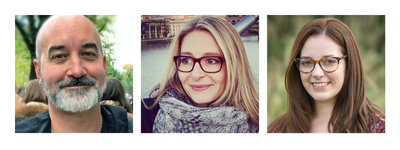
Dennis Tirch, Ph.D.
Laura Silberstein-Tirch, PsyD
Lauren Todd, Ph.D.
Workshop Description:
This workshop presents a novel approach to Compassion Focused Therapy (CFT) that integrates process-based and trauma-informed perspectives, drawing upon contextual behavioral science, affective neuroscience, evolution science, and the science of attachment. Grounded in CFT, ACT and Process Based Therapy (PBT), the workshop provides an integrative and ACT-consistent framework for working with psychological suffering in its multifarious forms.
The model presented involves a robust and coherent case formulation strategy that drives the deployment of evidence-based processes and procedures. This formulation is a foundation for bespoke interventions, that meet the client where they are, working with specific psychotherapy processes to help our clients liberate themselves from habitual patterns of suffering.
Participants will explore the core concepts and processes of CFT, including the cultivation of courage, safeness, and psychological flexibility. We will learn how to effectively use the therapeutic relationship, guided discovery, and specific compassion practices to help clients work courageously with life challenges and develop compassionate strengths.
Through group work and experiential exercises, participants will gain hands-on experience with compassion-focused interventions for various problems, including chronic shame and self-criticism. The innovative model presented combines the best of CFT, ACT, PBT and other evidence-based therapies, grounded in recent advances in psychological research and evolutionary contemplative psychology. By successfully integrating scientific rigor, interpersonal authenticity, and experiential practices, participants will learn to cultivate "compassionate flexibility" for both themselves and their clients.
The workshop emphasizes experiential learning, personal practice, and self-reflection, ensuring that participants experience the methods in a deeply embodied way. Participants will have opportunities to engage in advanced mindfulness, compassion, and acceptance-based practices throughout the course and in their daily practice.
This workshop is suitable for clinicians of all levels, particularly ACT and other behavior therapy practitioners seeking to deepen their understanding and application of CFT foundations. Whether you're new to CFT or ACT or a seasoned practitioner, this workshop offers valuable insights, techniques, and a process-based approach to organizing your work with clients and supporting compassionate flexibility.
About the Workshop Leaders:
- Dennis Tirch, Ph.D.
Dr. Dennis Tirch is the Founding Director of The Center for CFT in New York; Chairman of The Compassionate Mind Foundation, USA; Past-President and Fellow of ACBS, and an Associate Clinical Professor at Mt. Sinai Medical Center. Dr Tirch is the author of seven books, and numerous chapters and peer reviewed articles on mindfulness, acceptance and compassion in psychology. Dr Tirch regularly conducts Compassion Focused ACT (CF-ACT) and CFT trainings & workshops globally. He is a Dharma Holder and lay teacher of Zen Buddhism; a Diplomate, Fellow & Certified Consultant for The Academy of Cognitive Behavioral Therapy, and a Founding Fellow and Past President of both the NYC-CBT association & NYC-ACBS. Dr. Tirch serves as a mindfulness, wellness and performance coach to leading figures in business, science and the arts. Dr. Tirch regularly presents workshops and trainings globally, in person and via video-conference. His work has been featured by the New York Times, Wall Street Journal and other media outlets.
- Laura Silberstein-Tirch, PsyD
Dr. Laura Silberstein is the Director of The Center for CFT in New York and board member of the Compassionate Mind Foundation, USA. She has served as an Adjunct Assistant Professor at Albert Einstein College of Medicine. Dr Silberstein-Tirch is the co-author of four books, including How to Be Nice To Yourself. Dr Silberstein-Tirch regularly conducts trainings and workshops on Compassion Focused ACT and CFT internationally. She is a Past President of NYC-ACBS & Compassion Focused SIG of ACBS. Dr. Silberstein-Tirch is a founding member and Past President of the Women of ACBS SIG.
- Lauren Todd, Ph.D.
Dr. Lauren Todd is a Senior Psychologist at the Center for CFT, the Director of Compassion Psychology for the Public, and the Director of Child & Adolescent Services. Dr. Todd conducts evidence-based psychotherapy, including Acceptance and Commitment Therapy and Compassion-Focused Therapy, and works with individuals across the lifespan (i.e., children ages 8+, teens, adults, and parents). Her clinical career began while volunteering as a crisis counselor during her undergraduate years at Cornell University, which eventually led her to pursue her M.S. in Nutrition Communications from Tufts University, and her Ph.D. in Clinical Psychology at Fairleigh Dickinson University. She has worked in a variety of inpatient setting, including McLean Hospital, New York Presbyterian Hospital, and Rockland Children’s Psychiatric Center; and outpatient settings, such as the North Hudson Community Action Corporation, FDU Center for Psychological Serv ices, and the North Jersey Center for Cognitive Behavioral Therapy. She completed her APA-accredited pre-doctoral internship at ANDRUS, where she provided trauma-informed care to adults, adolescents, and children. She also works as a supervisor to doctoral students at Fairleigh Dickinson University and ANDRUS. Dr. Todd has an extensive research background, having managed research projects at Cornell University, the University of Oklahoma, and Fairleigh Dickinson University that examined contextual and environmental factors that influence mental and physical health behaviors, particularly among at-risk individuals.
Following this workshop participants will be able to:
- Describe the core concepts and processes of Compassion Focused Therapy (CFT), including the cultivation of courage, safeness, and psychological flexibility.
- Effectively integrate process-based and trauma-informed perspectives into CFT practice.
- Demonstrate foundational knowledge of the scientific foundations informing CFT, including contextual behavioral science, affective neuroscience, evolution science, and the science of attachment.
- Apply compassion-focused skills in using the therapeutic relationship, guided discovery, and specific compassion practices to help clients work courageously with life challenges and develop compassionate strengths.
- Implement a trauma-sensitive approach to CFT, acknowledging the widespread prevalence of trauma and the importance of clinicians extending compassion and care to themselves.
- Deploy compassion-focused interventions for various problems, including chronic shame and self-criticism, through group work and experiential exercises.
- Integrate CFT with other evidence-based methods such as Acceptance and Commitment Therapy (ACT), Cognitive Behavioral Therapy (CBT), and Dialectical Behavior Therapy (DBT).
- Facilitate and lead CFT imagery and meditative exercises.
- Train skills in cultivating "compassionate flexibility" for both oneself and clients by successfully integrating scientific rigor, interpersonal authenticity, and experiential practices.
- Apply a process-based approach to organizing work with clients and supporting compassionate flexibility.
Target audience: Beginner, Intermediate, Advanced, Clinical
Components: Conceptual analysis, Literature review, Experiential exercises, Didactic presentation, Case presentation, Role play
Topic Areas: Clinical, Functional contextual neuroscience
Package Includes: A general certificate of attendance
CE Credit Hours Available (13 hours): CEs for psychologists, social workers (NASW type), counselors (NBCC type)
Mastering the heartbeat of change: Applying basic principles of change in contextual therapies
Mastering the heartbeat of change: Applying basic principles of change in contextual therapiesMastering the heartbeat of change: Applying basic principles of change in contextual therapies
Dates and Location of this IN-PERSON 2-Day Workshop:
IN-PERSON at the Sheraton, New Orleans
Tuesday, July 15, 2025 from 8:30 a.m. to 4:45 p.m.
Wednesday, July 16, 2025 from 8:30 a.m. to 4:45 p.m.
Contact Hours: 13
Workshop Leaders: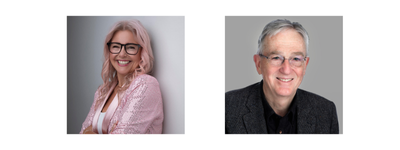
Niklas Törneke, M.D.
Rikke Kjelgaard, M.Sc.
Workshop Description:
Join us for a two-day workshop that explores the core principles of change across various therapeutic settings. This training builds on basic principles in contextual therapies, translating them into practical skills for today’s therapists.
Participants will learn how to use modern functional analysis as an overarching tool to conceptualize, build alliances, and craft targeted change strategies to shape clients’ psychological flexibility, enhancing the effectiveness of their interventions.
The workshop emphasizes practical, easy-to-apply strategies that are rooted in the science of behavior change with a special focus on insights from relational frame theory (RFT).
Through a mix of didactic presentations, live demonstrations, and hands-on role- playing exercises, attendees will gain a robust toolkit that not only respects the complexity of human behavior but also demystifies the process of applying these techniques in everyday practice. Our focus is on empowering therapists with knowledge and skills that can be immediately implemented to foster change.
Additionally, this training will instill confidence in practitioners, equipping them with reliable tools they can always turn to, making this workshop ideal for those seeking to broaden their scope and enhance their efficacy in therapy.
By the end of this workshop, attendees will not only understand the underpinnings of effective psychotherapy but also be capable of applying these techniques to foster meaningful change in their clients' lives.
About the Workshop Leaders:
- Niklas Törneke, M.D.
Niklas Törneke is a Swedish psychiatrist and licenced psychotherapist with more than 30 years experience of clinical work. He belongs to the original group of peer reviewed ACT trainers and is an awarded fellow of the association of contextual behavioral science (ACBS). Alongside his own clinical work he has been training and supervising other psychotherapists both in Sweden and internationally for many years. He has authored and co-authored several bookchapters and books with the special focus of applying basic behavioral principles to everyday clinical work, such as The ABCs of human behavior: Behavioral principles for the practicing clinician (2008, with Jonas Ramnerö); Learning RFT. An introduction to relational frame theory and its clinical application (2010); Metaphor in pracice. A professional's guide to using the science of language in psychotherapy (2017) and the forthcoming (January 2025) Using functional analysis in psychotherapy.
- Rikke Kjelgaard, M.Sc.
Rikke Kjelgaard is the CEO & founder of ACT Danmark and Human ACT Sweden and runs Rikke Kjelgaard Consulting. She is also the creator of the ACT Practitioner's Academy, which is an online training community for passionate ACT practitioners from all over the world. She has organized therapy, training and supervision in ACT and CBT since 2006 and has co-developed a 2 year specialist training program in ACT that has been very popular.
Rikke spends most of her working time delivering clinical consultation, therapy, trainings and supervision in Acceptance and Commitment Therapy. She is a popular clinician, trainer and public speaker in Scandinavia and on the international stage. Rikke is a peer reviewed ACT Trainer and awarded fellow of the Association For Contextual Science.
Following this workshop participants will be able to:
- Demonstrate an understanding of modern clinical functional analysis.
- Describe how an understanding of RFT is fundamental to clinical functional analysis.
- Demonstrate how to do a functional analysis in collaboration with the client.
- Demonstrate new skills in establishing a working alliance with the client.
- Demonstrate how to use functional analysis to conceptualize clinical problems.
- Demonstrate how to target specific change strategies, based on functional analysis.
- Demonstrate how to use the story the client presents for doing a functional analysis.
- Demonstrate how to use the therapeutic relationship to conduct a functional analysis.
- Demonstrate how to use metaphors in the context of a functional analysis.
- Demonstrate how to use experiential exercises in the context of a functional analysis.
Target audience: Beginner, Intermediate, Clinical
Components: Conceptual analysis, Experiential exercises, Didactic presentation, Case presentation, Role play
Topic Areas: Clinical intervention development or outcomes, Relational Frame Theory
Package Includes: A general certificate of attendance
CE Credit Hours Available (13 hours): CEs for psychologists, social workers (NASW type), counselors (NBCC type), BCBA
Now What? Moving Beyond the Basics and Increasing your Fluency in ACT
Now What? Moving Beyond the Basics and Increasing your Fluency in ACTNow What? Moving Beyond the Basics and Increasing your Fluency in ACT
Dates and Location of this VIRTUAL 2-Day Workshop:
VIRTUAL LIVE online via Zoom
Live, simultaneous translation into Spanish available (courtesy of ACBS Argentino, Colombia, México-Sur, and Perú Chapters)
Traducción simultánea en vivo al español (cortesía de ACBS Argentino, Colombia, México-Sur y Perú Capitulos)
Friday, June 6, 2025 and Saturday, June 7, 2025, 8:00 a.m. to 12:00 p.m. UTC/GMT -5 (Central Daylight Time)
Contact Hours: 7.5
Workshop Leaders: 
Miranda Morris, Ph.D.
Shawn Costello Whooley, PsyD
Holly Yates, MS, LCMHC
Workshop Description:
Looking to expand your ACT skills beyond the basics and create more impactful therapy sessions? Ever feel stuck wondering what to do next in session? Find yourself thinking too much about which process to use rather than staying present with your client? This workshop is designed for therapists who understand ACT fundamentals and want to develop greater fluidity, flexibility and depth in their practice.
This intensive workshop focuses on developing your ability to work responsively with what's happening in the moment. You'll learn to trust your clinical instincts while using functional analysis (FA) as your therapeutic compass, helping you identify workable interventions that enhance your clients' psychological flexibility.
Through a combination of demonstrations, experiential exercises, and small group work, you'll discover how to identify and respond to clients' "toward" and "away" moves in real-time. Rather than treating ACT processes as distinct components, you'll learn to weave all six core processes naturally into your sessions. The workshop emphasizes practical application through live demonstrations and role-play practice in a supportive, collaborative environment.
You'll develop proficiency in using functional analysis to guide your intervention choices and timing, learning to move fluidly between ACT processes based on moment-to-moment client needs. As you practice incorporating these principles into your existing skill set, you'll discover how functional analysis serves as the foundation for effective ACT work.
Throughout the day, you'll work with ACT more intuitively, understanding that therapeutic effectiveness comes not from selecting the "right" process, but from an awareness of context and function and - by extension - delivering interventions that increase psychological flexibility. You'll leave with greater confidence in your ability to work naturally and responsively within the ACT framework.
This workshop is ideal for mental health professionals who have a foundational understanding of ACT and some clinical experience applying it. Join us to transform your ACT practice into a flowing, natural, and powerful therapeutic approach.
About the Workshop Leaders:
- Miranda Morris, Ph.D.
Miranda Morris, Ph.D., is a psychologist in Bethesda, MD. She is a Peer Reviewed ACT Trainer, and she conducts regular workshops in Acceptance and Commitment Therapy (ACT) and related therapies including Functional Analytic Psychotherapy (FAP) and basic Relational Frame Theory (RFT). She has served as the President of the Association for Contextual Behavior Science and is a co-founder of the Mid Atlantic Chapter of ACBS Chapter. In her paid-work life, she is the Co-founder of True North Therapy and Training, a group dedicated to sharing contextual behavioral therapies with clients, practitioners, and the broader community.
- Shawn Costello Whooley, PsyD
Shawn Costello Whooley, PsyD, is a psychologist and Peer Reviewed ACT Trainer in private practice in Baltimore, MD, and in the Trauma Recovery Program at the Baltimore VA Medical Center. She is also the founder of Stillpoint Journeys, a coaching and training practice focused on moving the work of behavior change out of the office and into life by using extended hiking trips (and other adventures – equine, sailing) to experience the processes of ACT in real time. Shawn provides ACT and CBS training internationally and in academic settings. She serves as a Conference Strategy Committee member of the Association of Contextual Behavioral Science (ACBS) and is also an active member of the Mid Atlantic Chapter of ACBS, where she has served as President and Treasurer. Shawn is co-author of The Inner Critic Workbook: Self-Compassion and Mindfulness Skills to Reduce Feelings of Shame, Build Self-Worth, and Improve Your Life and Relationships. In her copious spare time, Shawn can’t get enough of all things outdoors, nature, and the environment.
- Holly Yates, Ms., MA, LCMHC
Holly Yates, LCMHC, has been in private practice in North Carolina since 2004. She is trained in functional analytic psychotherapy (FAP), ACT, and dialectical behavior therapy (DBT). She is a founding facilitator of the online ACT Peer Intervision Group sponsored through the Association of Contextual Behavior Science (ACBS), and a certified FAP trainer through University of Washington. Holly has been a presenter of FAP and ACT at ACBS World Conferences since 2016, and continues to train both internationally and domestically. Holly was a plenary speaker at the ACBS Brazil Conference in 2021. Holly is co-author of The Inner Critic Workbook: Self-Compassion and Mindfulness Skills to Reduce Feelings of Shame, Build Self-Worth, and Improve Your Life and Relationships and has co-authored a chapter on FAP and couples counseling. Yates is on the board of ACL Global Project, and is a member of the Functional Analytic Psychotherapy International Bo ard for Certification (FAPCEP).
Following this workshop participants will be able to:
1. Explain what is meant by “function” from an ACT perspective
2. Explain what is meant by “context” from an ACT perspective
3. Describe the importance of context and function in order to understand a behavior.
4. Explain how to use a functional analytic lens to make decisions about which core process(es) to focus on in a given moment
5. Identify and describe at least 3 experiential exercises that promote psychological flexibility
6. Explain the importance of experiential work in ACT
7. Demonstrate at least 2 strategies for accessing your own psychological flexibility with clients
8. Practice at least 2 strategies for working with challenging clients
9. Describe and practice moving flexibly and fluidly between the 6 core processes of ACT
10. Define and explain the relevance of the pragmatic truth criterion versus a correspondence-based truth in the context of our clinical ACT work
Target audience: Beginner, Intermediate, Clinical
Components: Experiential exercises, Didactic presentation_, Case presentation, Role play
Topic Areas: Clinical, Theoretical and philosophical foundations
Package Includes: A general certificate of attendance
CE Credit Hours Available (7.5 hours): CEs for psychologists, social workers (NASW type), counselors (NBCC type), BCBA CEUs
¿Y ahora qué? Avanzando más allá de lo básico y aumentando tu fluidez en ACT
Fechas y ubicación de este taller VIRTUAL de 2 días:
VIRTUAL taller en línea via Zoom
Traducción simultánea en vivo al español (cortesía de ACBS Argentino, Colombia, México-Sur y Perú Capitulos)
Viernes, 6 de junio de 2025 y sábado, 7 de junio de 2025, 8:00 a.m. to 12:00 p.m. UTC/GMT -5 (CDT)
Horas: 7.5
Facilitadores del Taller: 
Miranda Morris, Ph.D.
Shawn Costello Whooley, PsyD
Holly Yates, Ms., MA, LCMHC
¿Buscas ampliar tus habilidades en ACT más allá de lo básico y crear sesiones terapéuticas más impactantes? ¿Alguna vez te has sentido estancado sin saber qué hacer a continuación en una sesión? ¿Te descubres pensando demasiado en qué proceso usar en lugar de mantenerte presente con tu cliente? Este taller está diseñado para terapeutas que ya conocen los fundamentos de ACT y desean desarrollar mayor fluidez, flexibilidad y profundidad en su práctica.
Este taller intensivo se centra en desarrollar tu capacidad para trabajar de forma responsiva con lo que ocurre en el momento presente. Aprenderás a confiar en tu intuición clínica mientras usas el análisis funcional (AF) como tu brújula terapéutica, lo que te ayudará a identificar intervenciones efectivas que fomenten la flexibilidad psicológica de tus clientes.
A través de una combinación de demostraciones, ejercicios experienciales y trabajo en pequeños grupos, descubrirás cómo identificar y responder en tiempo real a los movimientos "hacia" y "lejos de" de tus clientes. En lugar de tratar los procesos de ACT como componentes separados, aprenderás a integrar los seis procesos centrales de forma natural en tus sesiones. El taller pone énfasis en la aplicación práctica mediante demostraciones en vivo y prácticas con juegos de roles en un entorno colaborativo y de apoyo.
Desarrollarás competencia en el uso del análisis funcional para guiar tus elecciones e intervenciones, así como el momento adecuado para aplicarlas, aprendiendo a moverte con fluidez entre los procesos de ACT según las necesidades del cliente momento a momento. Al incorporar estos principios a tu conjunto de habilidades existente, descubrirás cómo el análisis funcional sirve como base para un trabajo efectivo con ACT.
A lo largo del día, trabajarás con ACT de manera más intuitiva, comprendiendo que la efectividad terapéutica no proviene de elegir el "proceso correcto", sino de una conciencia del contexto y la función, y, en consecuencia, de aplicar intervenciones que aumenten la flexibilidad psicológica. Saldrás del taller con mayor confianza en tu capacidad para trabajar de manera natural y responsiva dentro del marco de ACT.
Este taller es ideal para profesionales de la salud mental que tienen un entendimiento básico de ACT y cierta experiencia clínica aplicándolo. Únete a nosotros para transformar tu práctica de ACT en un enfoque terapéutico fluido, natural y poderoso.
Al finalizar este taller, los participantes serán capaces de:
Explicar qué se entiende por “función” desde la perspectiva de ACT.
Explicar qué se entiende por “contexto” desde la perspectiva de ACT.
Describir la importancia del contexto y la función para comprender una conducta.
Explicar cómo utilizar una lente de análisis funcional para tomar decisiones sobre en qué proceso(s) central(es) enfocarse en un momento dado.
Identificar y describir al menos 3 ejercicios experienciales que promuevan la flexibilidad psicológica.
Explicar la importancia del trabajo experiencial en ACT.
Demostrar al menos 2 estrategias para acceder a tu propia flexibilidad psicológica con los clientes.
Practicar al menos 2 estrategias para trabajar con clientes desafiantes.
Describir y practicar cómo moverse de manera flexible y fluida entre los 6 procesos centrales de ACT.
Definir y explicar la relevancia del criterio de verdad pragmático en comparación con una verdad basada en la correspondencia en el contexto de nuestro trabajo clínico con ACT.
Público objetivo: Principiante, Intermedio, Clínico
Componentes: Ejercicios experienciales, Presentación didáctica, Presentación de casos, Juegos de rol
Áreas temáticas: Clínica, Fundamentos teóricos y filosóficos
Incluye: Certificado general de participación
Process-Based Practice: Shaping Psychological Flexibility in Children, Adolescents, and Their Parents
Process-Based Practice: Shaping Psychological Flexibility in Children, Adolescents, and Their ParentsProcess-Based Practice: Shaping Psychological Flexibility in Children, Adolescents, and Their Parents
Dates and Location of this IN-PERSON 2-Day Workshop:
IN-PERSON at the Sheraton, New Orleans
Tuesday, July 15, 2025 from 8:30 a.m. to 4:45 p.m.
Wednesday, July 16, 2025 from 8:30 a.m. to 4:45 p.m.
Contact Hours: 13
Workshop Leaders: 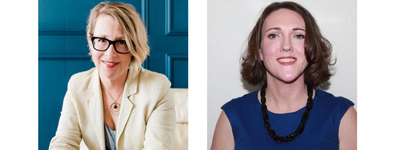
Lisa Coyne, Ph.D.
Sarah Cassidy, Ph.D.
Workshop Description:
Research estimates that the prevalence of clinically elevated child and adolescent anxiety are at a stark 20.5% of the global population (Racine, 2021). Further studies show that one in six American children have at least one treatable mental health condition (e.g., anxiety or depression) or a neurodivergence (e.g., ADHD or Autism) which often leads to higher rates of mental health distress (Devitt, 2019). One meta-analysis of 87 studies across 44 countries estimated the global current prevalence of anxiety disorders at 7.3% (4.8–10.9%, adjusted for methodological differences across studies; Baxter, Scott, Vos, & Whiteford, 2012). Moreover, the prevalence of avoidance-based disorders in young people has risen over the past decade, 2 most dramatically after the global COVID-19 epidemic. Despite high prevalence rates and burden, few youngsters who need treatment receive it.
While exposure-based treatment for avoidance-based disorders in youth populations has robust empirical support, intent-to-treat analyses suggest that approximately 1 in 5 individuals drop out of exposure treatment (Hofmann and Smits, 2008; Ong et al. 2016), estimates suggest that 33% do not improve (Öst et al., 2015), and longitudinal data suggest that 48% relapse (eg Ginsburg et al., 2013; 2018). To complicate matters, simply adding ACT to exposure-based treatment does not lead to demonstrably improved outcomes (Twohig et al., 2018). Improving exposure outcomes will require a principles-based, patient-centered “microanalytic approach” (Twohig et al., 2018) for individual clients in their behavioral and contextual complexity. As our understanding deepens about the contexts in which mental health issues arise in young people, including the experience of neurodivergence in a neurotypical world, the marginalization of minority groups, increasing rates of poverty, and disruptions caused by climate change, growing up has grown more challenging, with the future more uncertain. The facts that that our most rigorous treatments have substantial room for improvement, that so few young people who need help receive it, and that they are experiencing increasing contextual challenges pose a serious question for our field: how do we, as clinicians and behavior scientists, make treatment more sensitive, responsive, accessible, and effective?
This two-day workshop for clinicians with some experience with either Acceptance and Commitment Therapy (ACT), behavioral, or cognitive-behavioral treatments for anxiety will explore how to use the principles underlying ACT, RFT, and behavior analysis to enhance process-based treatment with children and adolescents through supporting curiosity, willingness, flexibility, and values-guided action. Specifically, the presenters will discuss how to assess skills or performance deficits in psychological flexibility, how to shape broad and effective behavioral repertoires, and coach parents to scaffold psychological flexibility. Specific attention will also be given to using these techniques across child development, supporting neurodivergent youth, and families raising them. Clinical examples and demonstrations will be used to illustrate therapeutic techniques, in addition to the workshop’s didactic content. Participants will have opportunities to observe and participate in role plays and experiential exercises, to explore creating their own “toolbox” of exercises to evoke and reinforce adaptive learning in context. Time permitting, participants will be invited to participate in case consultation with challenging or complex child cases.
About the Workshop Leaders:
- Lisa Coyne, Ph.D.
Dr. Coyne is the Founder and Senior Clinical Consultant of the McLean OCD Institute for Children and Adolescents at McLean Hospital and is an Assistant Professor at Harvard Medical School. She is the Founder and Executive Director of the New England Center for OCD and Anxiety (NECOA) and is Past President of the Association of Contextual Behavioral Science (ACBS). She is member of the Clinical and Scientific Advisory Board and is on the Faculty of the Behavior Therapy Training Institute (BTTI) of the International OCD Foundation (IOCDF). She is also a licensed psychologist, a peer-reviewed ACT trainer, and author. She has authored multiple articles and chapters on ACT with children and adolescents and is a co-author of the books Acceptance and Commitment Therapy: The Clinician’s Guide for Supporting Parents (Elsevier), and The Joy of Parenting (New Harbinger). Her new books, Stuff That’s Loud: A Teen’s Guide to Unspiralling When O CD Gets Noisy (New Harbinger & Little Brown), Stop Avoiding Stuff: 25 Microskills to Face Your Fears and Do It Anyway, were published in 2020. With Sarah Cassidy, she has co-authored Tired of Anxiety: A Kid’s Guide to Befriending Scary Thoughts and Living Your Life Anyway (2022) and Tired of Teen Anxiety: A Young Person’s Guide to Discovering Your Best Life and Becoming Your Best Self (2024).
- Sarah Cassidy, Ph.D.
Dr. Sarah Cassidy is the President Elect of the Psychological Society of Ireland. She is a late diagnosed multiply neurodivergent Psychologist & Peer Reviewed ACT Trainer. She is Founder and Director of Smithsfield Clinic (Ireland), co-founder and co-director of New England Centre for OCD and Anxiety (Ireland branch), and co-founder of an RFT based cognitive skills training company, RaiseYourIQ.com. She is chartered with the Psychological Society of Ireland (PSI) and an elected executive Council Member from 2023-2026. As Council Member, she is currently co-chairing a working group to set up the Professional Conduct Committee for psychologists in Ireland, has been co-author on a number of important Best practice documents in Ireland including the PSI’s Response to the Green Paper on Disability Rights, Professional Practice Guidelines for Assessment and Treatment of ADHD in children and adults, and Professional Practice Guidelines for Assessment of Autism in Adulthood. She is in the Division of Clinical Child and Adolescent Psychologists with the American Psychological Association. She is on the ACBS Foundation Board, the Membership Committee, the ACBS Neurodiversity Affirming Research and Practice Steering SIG chairing the Community Education and Outreach pillar. She has been on the SCPA Panel for the Irish National Educational Psychological Services for more than 2 decades and conducts assessments for a wide range of educational, social emotional, mental health and neurodevelopmental differences. She lectures in Child, Educational and Counselling Psychology. Finally, Sarah has authored a wide array of scientific papers on RFT and ACT, and with Dr Lisa Coyne, has co-authored two best-selling ACT books on supporting anxious children and teens in the Tired of Anxiety series.
Following this workshop participants will be able to:
1. Describe a principles-based process to shaping psychological flexibility with exposure-based treatment
2. Engage young clients and their caregivers in effective rationales for exposure-based therapy, based on a psychological flexibility paradigm
3. Describe the DNA-V model and how to use it to shape flexible perspective-taking and behavioral variability in avoidance-based disorders
4. Develop a therapeutic relationship characterized by acceptance, values, compassion and commitment to support the client in engaging in exposure-based treatment
5. Describe psychological flexibility as a set of behavioral skills that can be shaped as a target of developmental contextual behavioral ACT intervention
6. Prepare and utilize the process of a functional behavioral assessment and case conceptualization to assess skills deficits and develop a collaborative treatment plan with clients
7. Engage clients using valuing as action and direction to “contextualize” exposure and place exposure-based tasks under appetitive control
8. Explain how to shape the processes involved in psychological flexibility, including valuing and perspective-taking, to engage clients in exposure-based treatment
9. Use clinical RFT methods to enhance tracking and contact with contingencies to usefully explore expectancy violation
10. Use clinical RFT methods to foster flexible perspective-taking to enhance engagement in exposure tasks and promote functional senses of self
11. Assess progress in treatment using within-task and across-session methods
12. Adapt treatment to support and empower neurodivergent youth
13. Partner with parents of anxious and neurodivergent youth to create optimal zones of development in families
14. Collaborate with teachers to create nurturing learning spaces and integrate psychological flexibility into daily classroom activities.
15. Use the Comfort vs Discovery Zone assessment tool to support exposure and response prevention practices
Target audience: Beginner, Intermediate, Clinical
Components: Conceptual analysis, Literature review, Experiential exercises, Didactic presentation_, Case presentation, Role play, Videos
Topic Areas: Clinical, Training
Package Includes: A general certificate of attendance
CE Credit Hours Available (13 hours): CEs for psychologists, social workers (NASW type), counselors (NBCC type), BCBA
Staying prosocial as things fall apart
Staying prosocial as things fall apartStaying prosocial as things fall apart
Dates and Location of this VIRTUAL 2-Day Workshop:
VIRTUAL LIVE online via Zoom
Automated Zoom captioning and automated Zoom translation available.
Friday, June 6, 2025 and Saturday, June 7, 2025, 2:00 p.m. - 6:00 p.m. UTC/GMT -5 (Central Daylight Time)
Contact Hours: 7.5
Workshop Leaders: 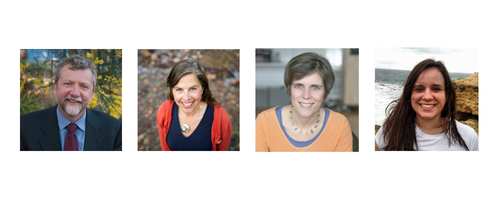
Paul Atkins, Ph.D.
Rachel Gooen, MSW
Viveka Ramel, Ph.D.
Anna Castonguay, MA
Workshop Description:
We live in a time of mounting global challenges and weakening social connections, where our need to engage meaningfully with each other has never been more critical. The path forward depends on our ability to come together in effective groups that can collaborate, innovate, and implement solutions to address these interconnected crises. Through our relationships, we create the space for both personal and collective transformation – the foundation we need for meaningful action and systemic change. By developing our abilities to truly listen and find common ground, we can resist the pull toward division and isolation that feeds authoritarian thinking and tears at our social fabric.
Using ProSocial's evidence-based process, we will show you how psychological flexibility processes can be scaled to the group level to create highly functioning and unified groups (Organizations, Businesses, Community Groups, Social Movements). Drawing from Acceptance and Commitment Therapy (ACT), Evolutionary Science, the Work that Reconnects, and Elinor Ostrom's work on the commons, participants will learn practical tools for building psychological flexibility and fostering connection and collaboration amid increasing social stress, fragmentation and polarization.This two-day experiential workshop will introduce processes, principles, and tools designed to inspire hope. Participants will learn that they can make a difference, even in challenging times, by focusing on actions that a) improve their local community, b) hold personal significance, and c) have the potential to create a broader collective impact.
We have the ability to leverage the power of groups, not only to provide each other support and adaptation to the shifting environmental and social landscapes but also to address the core drivers and foster collective efforts toward protecting, healing, and regenerating the earth and our relationships.
The workshop is structured across two days, with Day 1 focused on "inner work" and Day 2 on "outer work":
About the Workshop Leaders:
- Paul Atkins, Ph.D.
Paul is an author, researcher and facilitator trainer. He is a Visiting Professor with the Crawford School of Public Policy (Australian National University). His research is focused on interventions to reduce stress while enhancing relationships, wellbeing, perspective-taking, and cooperation in groups and organizations. He is co-founder of ProSocial World, a not for profit organization focused on enhancing cooperation and trust in purpose-driven groups globally. He has applied ACT and ProSocial in contexts as diverse as private sector organisations, political parties, schools and the United Nations. Paul is the former President of the ANZ Association for Contextual Behavioral Science, a Fellow of the international ACBS, and a board member of the World Happiness Foundation.
- Rachel Gooen, MSW
Rachel Gooen is a seasoned facilitator with over 25 years of experience in personal growth, leadership, team dynamics, and collaboration. She holds a Master of Science (MS), a Master of Social Work (MSW), and is a Licensed Clinical Social Worker (LCSW), equipping her with a deep understanding of individual and community change. Rachel is dedicated to helping mission-driven organizations develop healthy people, ecosystems, and communities.
Throughout her career, Rachel has specialized in creating meaningful outcomes by guiding individuals, organizations, and communities to achieve their goals effectively and inclusively. She is well-versed in facilitation, program development, leadership training, and community-based participatory research. With a strong foundation in Acceptance and Commitment Therapy (ACT) and Prosocial, she uses these principles to support positive change.
Rachel is particularly skilled at empowering coalitions, boards, and teams to work together more effectively, supporting organizations and leaders in creating meaningful impact in their communities and ecosystems. Her commitment to inclusive, participatory processes helps groups develop the collaborative skills needed to solve complex challenges and build a more robust, sustainable future.She works throughout the United States with nonprofits, government agencies, and individuals to create lasting impact and foster better collaboration.
- Viveka Ramel, Ph.D.
Viveka is a licensed clinical psychologist in California, USA, teacher, and consultant with private practices in San Francisco (Sevitar and San Francisco Center for ACT). She specializes in Acceptance and Commitment Therapy (ACT), Emotionally Focused Therapy (EFT), compassion and mindfulness-based interventions, climate psychology, and prosocial practice and theory. She offers lectures and workshops on psychological and behavioral dimensions of the climate crisis, and consults with organizations and groups seeking to apply and integrate climate awareness and action, prosociality, psychological flexibility, mindfulness, and mental sustainability into their cultures.
- Anna Castonguay, MA
Anna Castonguay is co-founder of Awakening Lands, a learning and support network for facilitators exploring community and landscape healing practices, and supports nonprofit collaboratives in identifying and pursuing strategic initiatives. She teaches at Daemen University's Department of Behavioral Sciences and sits on the board of various nonprofits focused on the environment and conservation. Anna is passionate about disseminating the philosophy of prosocial to others in order to bring about cultural change.
Following this workshop participants will be able to:
- Scale ACT processes from individual to relationships and groups to enhance collective psychological flexibility.
- Describe how RFT, evolutionary theory and the social sciences provide evidence for this approach to scaling.
- Use perspective-taking exercises to bridge divides and foster understanding across differences.
- Examine how 'othering' creates a self-reinforcing cycle of social division, and apply ACT-based strategies to recognize and transform these patterns to build more inclusive relationships.
- Recognize when stress responses or defensive behaviors emerge, so they can be managed compassionately.
- Apply Ostrom's core design principles to create more resilient and equitable group structures.
- Demonstrate how to help groups develop shared purpose and identity while honoring diversity.
- Implement practices that promote transparency and strengthen beneficial group behaviors.
- Use the ACT Matrix and other tools to help groups identify barriers to their goals while still moving toward their mission.
- Create action plans for implementing prosocial practices in participants' own contexts.
Target audience: Beginner, Intermediate, Advanced
Components: Experiential exercises, Didactic presentation, Role play
Topic Areas: Responding to Social and Environmental Change, Organizational behavior management
Package Includes: A general certificate of attendance
CE Credit Hours Available (7.5 hours): CEs for psychologists, social workers (NASW type), counselors (NBCC type)
The Heart of ACT: A Process-Based, Client-Centered Approach to Creating Meaning
The Heart of ACT: A Process-Based, Client-Centered Approach to Creating MeaningThe Heart of ACT: A Process-Based, Client-Centered Approach to Creating Meaning
Dates and Location of this IN-PERSON 2-Day Workshop:
IN-PERSON at the Sheraton, New Orleans
Tuesday, July 15, 2025 from 8:30 a.m. to 4:45 p.m.
Wednesday, July 16, 2025 from 8:30 a.m. to 4:45 p.m.
Contact Hours: 13
Workshop Leaders:
Robyn Walser, Ph.D.
Workshop Description:
The heart of Acceptance and Commitment Therapy (ACT) lies in its relational work, emphasizing the therapeutic relationship as the foundation for meaningful change. ACT helps clients connect with their values and make life-enhancing choices through a variety of verbal and experiential processes and techniques. While these processes can be learned at many levels, their nuanced and subtle applications within the therapeutic relationship often present challenges. Implementing ACT’s behavioral processes in a flexible, consistent, and effective manner within complex relational experiences requires skill and practice. This immersive workshop is designed for mental health professionals seeking to deepen their capacity to apply ACT in real-world therapy, focusing on the dynamic interplay of intrapersonal, interpersonal, and overarching processes. By grounding the work in the therapeutic relationship, participants will learn how to foster authentic connections, facilitate transformative dialogues, and empower clients to live in alignment with their personally held values. Through experiential learning and practical application, clinicians will refine their ability to bring ACT’s core processes—including mindfulness, compassion, and values-based action—to life, creating lasting and meaningful change for their clients.
About the Workshop Leaders:
- Robyn Walser, Ph.D.
Robyn D. Walser, Ph.D., is a clinical psychologist, educator, and author. She serves as the Director of Trauma and Life Consultation and Psychology Services and is an Assistant Professor at the University of California, Berkeley. Dr. Walser is also the Director of Research at Bay Area Trauma Recovery Clinical Services and works National Center for PTSD. Dr. Walser has been deeply involved in the dissemination of Acceptance and Commitment Therapy (ACT), playing a key role in its implementation within one of the largest national healthcare systems in the U.S. She has co-authored several books on ACT, including The Heart of ACT: Developing a Flexible, Process-Based, and Client-Centered Practice Using Acceptance and Commitment Therapy, which reflects her commitment to client-centered and flexible therapeutic approaches. Since 1997, Dr. Walser has led ACT workshops worldwide, sharing her understanding of process-based, experiential learning with therapists and clinicians. She values the integration of evidence-based practices with human connection and adaptability, aiming to make therapy both effective and transformative. Through her writing, teaching, and clinical work, Dr. Walser seeks to support professionals in their efforts to navigate complex psychological challenges with compassion and heart. For more information about her work, visit robynwalser.com.
Following this workshop participants will be able to:
- Describe the foundational principles of ACT as a process-based, client-centered therapy, emphasizing the role of process over content in creating therapeutic change.
- Analyze the distinction between content, process, and function in therapy and develop skills to identify and work with these dimensions effectively in clinical practice.
- Differentiate between interpersonal and intrapersonal processes within the ACT framework, and explain how these dynamics shape a client’s experiences and challenges.
- Identify and analyze behavioral patterns and their underlying dynamics within the therapeutic relationship.
- Demonstrate the ability to track and reflect on the unfolding emotions, thoughts, and behaviors of clients during therapy sessions, utilizing ACT's six core processes.
- Assess the critical role of the therapeutic alliance and describe how to leverage it to address both interpersonal and intrapersonal processes effectively.
- Facilitate client self-awareness by identifying and addressing patterns of avoidance and cognitive fusion, fostering greater insight into their relational and emotional experience.
- Apply ACT techniques to promote emotional expression and regulation, focusing on how these processes interact within both internal (intrapersonal) and relational (interpersonal) contexts.
- Develop a clear framework for determining therapeutic targets in ACT, identifying which processes and behaviors to address for meaningful change.
- Apply ACT-based case conceptualization as a dynamic and ongoing process, integrating an understanding of interpersonal and intrapersonal influences to inform therapeutic strategies.
Target audience: Beginner, Intermediate, Advanced, Clinical
Components: Conceptual analysis, Literature review, Experiential exercises, Didactic presentation, Role play
Topic Areas: Clinical intervention development or outcomes, Professional issues
Package Includes: A general certificate of attendance
CE Credit Hours Available (13 hours): CEs for psychologists, social workers (NASW type), counselors (NBCC type)
Trauma-Focused ACT: Working With Body, Mind and Emotion
Trauma-Focused ACT: Working With Body, Mind and EmotionTrauma-Focused ACT: Working With Body, Mind and Emotion
Dates and Location of this IN-PERSON 2-Day Workshop:
IN-PERSON at the Sheraton, New Orleans
Tuesday, July 15, 2025 from 8:30 a.m. to 4:45 p.m.
Wednesday, July 16, 2025 from 8:30 a.m. to 4:45 p.m.
Contact Hours: 13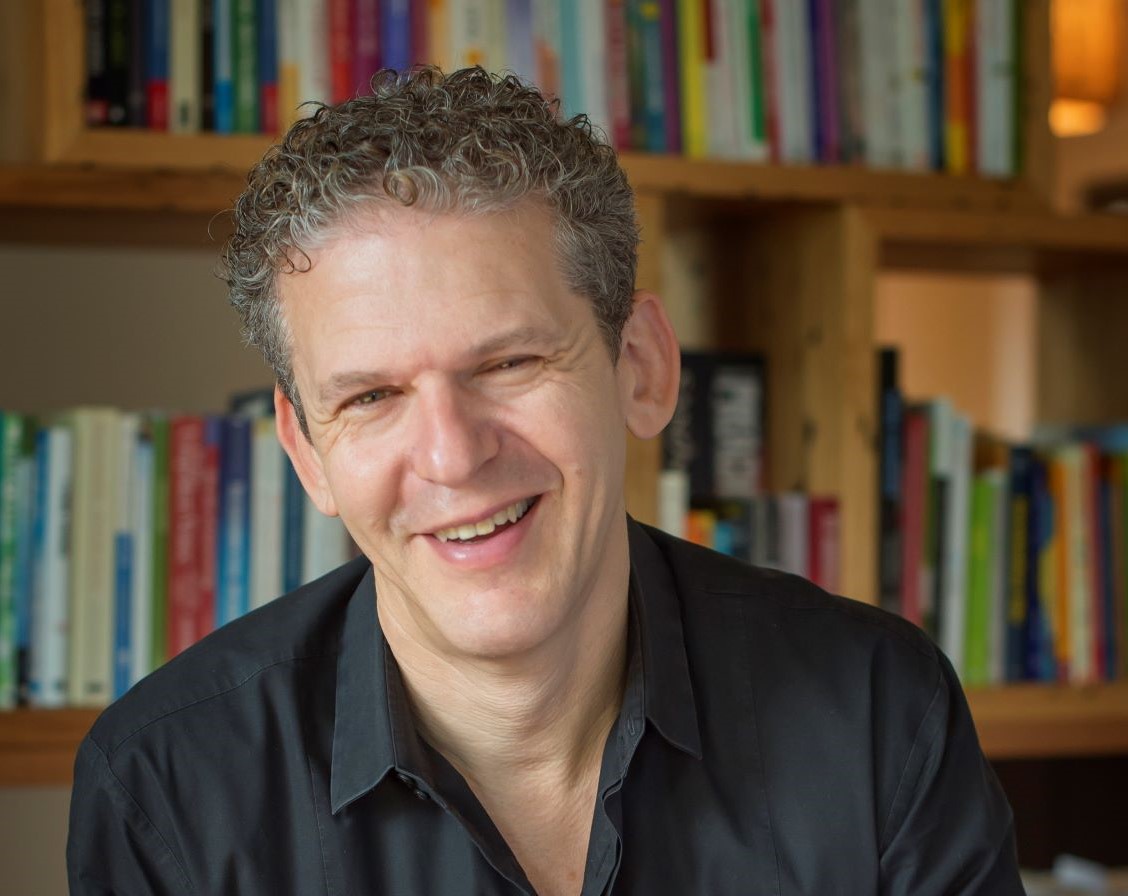
Workshop Leaders:
Russ Harris, M.B.B.S.
Workshop Description:
Trauma-Focused ACT (TFACT) is a flexible, comprehensive approach model for treating the entire spectrum of trauma-related issues, including post-traumatic stress disorder (PTSD), addiction, depression, anxiety disorders, moral injury, chronic pain, shame, suicidality, insomnia, complicated grief, attachment issues, sexual problems, and more. TFACT is a compassion-based, exposure-centred approach, which incorporates cutting-edge strategies for healing the past, living in the present, and building a new future. You’ll learn how to help your clients:
Find safety and security in their bodies
Overcome hyperarousal and hypoarousal
Break free from dissociation
Shift from self-hatred to self-compassion
Rapidly ground themselves and reengage in life
Unhook from difficult cognitions and emotions
Develop an integrated sense of self
Resolve traumatic memories through “inner child” work and flexible exposure
Connect with and live by their values, and engage fully in life here and now
Experience post-traumatic growth
About the Workshop Leader:
- Dr Russ Harris, M.B.B.S.
Dr Russ Harris, M.B.B.S., is a physician and psychotherapist, working in private practice in Melbourne, Australia. He graduated in medicine from the University of Newcastle-Upon-Tyne, England, in 1989, and emigrated to Australia in 1991. Working as a GP (family doctor), he became increasingly interested in the psychological aspects of health and wellbeing, and increasingly disenchanted with writing prescriptions. Ultimately this interest led to a career change – from medical practitioner to therapist.
Russ is a world-acclaimed ACT trainer and author. Since 2005, he has run over 800 two-day ACT workshops, and has provided ACT training in person or online for over 80,000 health professionals. He has authored four ACT textbooks (ACT Made Simple, Trauma Focused ACT, Getting Unstuck in ACT, ACT Questions & Answers), and six ACT-based self-help books. His best-known book, The Happiness Trap, has sold over one million copies worldwide, with translations into over 30 languages.
He proudly proclaims each workshop a ‘jargon-free zone’ – and bases his training on three core values: simplicity, clarity, and having fun. Participants regularly report not only major improvements in their therapy, but also in their personal lives – and evaluation forms frequently praise his ability to make complex ideas simple.
Following this workshop participants will be able to:
1. Discuss the basic neuroscience of trauma in simple terms that clients can easily understand.
2. Apply the principles of 'trauma-sensitive mindfulness' to safely modify previously-trained mindfulness interventions
3. Apply ACT methods to work with dissociative state, hyperarousal, and hypoarousal
4. Integrate ACT with attachment theory and Polyvagal theory
5. Describe the 'window of flexibility', how it differs from the popular 'window of tolerance', and how it can guide TFACT interventions
6. Apply ACT principles to work with traumatic memories and flashbacks.
7. Utilize ACT techniques to assist clients with emotion dysregulation.
8. Use ACT principles to design and implement values-guided, compassion-based exposure-based interventions
9. Use the 'choice point' tool flexibly, to guide sessions, set goals, do brief functional analysis, or guide exposure
10. Apply ACT methods for overcoming shame and fostering self-compassion
Target audience: Intermediate, Advanced
Components: Experiential exercises, Didactic presentation, Case presentation, Role play, Videos of therapy sessions
Topic Areas: Clinical, Behavioral medicine
Package Includes: A general certificate of attendance
CE Credit Hours Available (13 hours): CEs for psychologists, social workers (NASW type), counselors (NBCC type)
WC2025 Pre-Conference Workshops Registration
WC2025 Pre-Conference Workshops Registration
Registration has now concluded, thank you for joining us!
Please Note:
- Additional fees are required for certificates that track the number of hours you attended ($25 USD) and CE credits ($75 USD). These fees cover all eligible sessions June 6-7 and July 15-20. You only need to pay the fee once to earn a certificate for all events you attend.
- All rates are in US Dollars.
- We apologize that we may not be able to accommodate special meal requests (gluten free, vegan, allergies, etc.) for registrations received after June 13.
- To register via Mail or Fax, or pay via PayPal, please use the Printable Version: DOC or PDF.
- NEED HELP? If you're having trouble registering, please email Abbie at [email protected]
Member Rate Qualification
- Registration rates apply as you register. Subsequent memberships do not qualify those already registered for a refund of the difference between the member and non-member rates. The same is true for students, or other similar status and discounts, unless a full cancellation and refund are issued, and prevailing rates apply.
- Affiliate members (or non-members who are not professionals or students) may register at the professional rate. If you are currently receiving mental health care we encourage you to talk to your provider about the utility of this conference for you, prior to registering.
- Student Registration/Membership is available to individuals who are enrolled in a program of study leading to a bachelor’s, master’s, or doctoral degree, are interns, or are postdoctoral candidates. Postdoctoral candidates qualify for Student Registration for up to 2 years, with proof of status from their employer. After this time, they need to register as a Professional. Note: Those registering for the conference as a student are ineligible to earn any kind of CE credits.
Refunds:
Cancellation of Pre-conference registration must be submitted in writing via email and must be dated on or before 4:00 p.m. local New Orleans time on June 2 to [email protected] to receive a refund minus a $25 USD registration cancellation processing fee.
We regret that after June 2, refunds cannot be made, however we will allow a substitute registrant (they can receive access and a certificate in their name). If you need a refund, please contact us via email. (Note: Shared registrations are not permissible... meaning that you can't attend one day and your colleague the next, etc.)
No refunds will be granted for no-shows.
It is the responsibility of the registrant to make sure that they have received information related to virtual workshop access. If you are registered and do not receive an email granting you pre-conference access (as appropriate) by the morning of June 5, 2025, please contact [email protected].
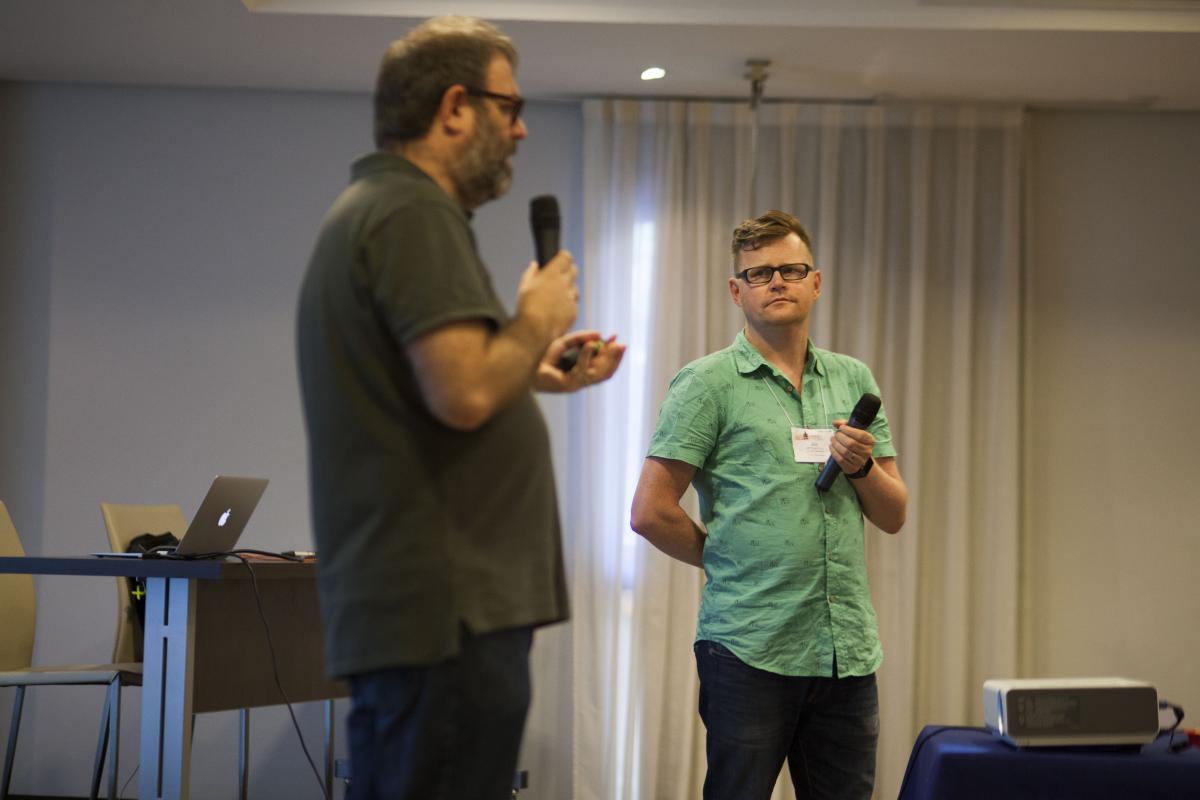 In-Person
In-PersonCancellation of Pre-conference registration must be submitted in writing via email and must be dated on or before 4:00 p.m. local New Orleans time on June 13 to [email protected] to receive a refund minus a $50 USD registration cancellation processing fee.
We regret that after June 13, refunds cannot be made, however we will allow a substitute registrant (they can receive access and a certificate in their name). If you need a refund, please contact us via email. (Note: Shared registrations are not permissible... meaning that you can't attend one day and your colleague the next, etc.)
No refunds will be granted for no-shows.
Photographs/Video:
ACBS intends to take photographs and video of this event for use in ACBS newsletters and promotional material, in print, electronic and other media, including the ACBS website and social media accounts. By participating in this event, I grant ACBS the right to use any image, photograph, voice or likeness, without limitation, in its promotional materials and publicity efforts without compensation. All media become the property of ACBS. Media may be displayed, distributed or used by ACBS for any purpose.
Attendees of the World Conference or Pre-Conference Workshops are not permitted to audio or video-record sessions without the express written permission of ACBS.
If you have any concerns regarding the media policy, please feel free to contact us.
Waiver of Liability:
As a condition of my participation in this meeting or event, I hereby waive any claim I may have against the Association for Contextual Behavioral Science (ACBS) and its officers, directors, employees, or agents, or against the presenters or speakers, for reliance on any information presented and release ACBS from and against any and all liability for damage or injury that may arise from my participation or attendance at the program. I further understand and agree that all property rights in the material presented, including common law copyright, are expressly reserved to the presenter or speaker or to ACBS. I acknowledge that participation in ACBS events and activities brings some risk and I do hereby assume responsibility for my own well-being. If another individual participates in my place per ACBS transfer policy, the new registrant agrees to this disclaimer and waiver by default of transfer.
You Matter: Idionomic Biopsychosocial Pathways to Human Resilience
You Matter: Idionomic Biopsychosocial Pathways to Human ResilienceYou Matter: Idionomic Biopsychosocial Pathways to Human Resilience
Dates and Location of this IN-PERSON 2-Day Workshop:
IN-PERSON at the Sheraton, New Orleans
Tuesday, July 15, 2025 from 8:30 a.m. to 4:45 p.m.
Wednesday, July 16, 2025 from 8:30 a.m. to 4:45 p.m.
Contact Hours: 13
Workshop Leaders: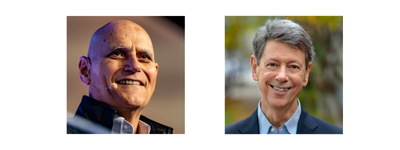
Steven C Hayes, Ph.D.
Rick Hanson, Ph.D.
Workshop Description:
This two-day workshop is designed to be a transformative journey navigating the profound interconnections between contextual behavioral science, timeless wisdom traditions, and cutting-edge neuroscience. Participants will delve into the art and science of learning to accept, release what hinders, and embrace what enriches life, culminating in value-driven actions, all features that are well known in ACT and CBS, but to do so across two different but related traditions: CBS itself, and wisdom tradition informed neuroscience.
Participants will explore the essential human experiences of mattering, self-loyalty, and psychological flexibility, including the foundations of self-loyalty in morality, self-compassion, and grit -- and how to internalize these qualities so as to produce lasting neurobiological changes. The empowering experience of "not-knowing" in therapy will be a focus -- learning to use this experience to enhance the therapeutic relationship through openness and curiosity.
The workshop will also address the personal and societal sources that can lead one to feel their life doesn't matter, identifying and addressing blocks to self-care and self-worth. Participants will engage in experiential practices aimed at fostering a sense of being cared for by others, which in turn, strengthens awareness of personal values and commitments. Instead of a "one size fits all" approach in each of these areas participants will be asked to explore their own lives with eyes wide so that more general principles are based on what is true at the level of particular people with particular histories, current situations, and goals. The emerging science of idionomic analysis will be addressed as well, giving empirical form to the practicality of particularity. Through interactive sessions, demonstrations, and discussions, you'll learn how to translate these ideas and experiences into practical, life-affirming actions, enhancing both personal development and therapeutic practice.
About the Workshop Leaders:
- Steven C Hayes, Ph.D.
Steven C. Hayes is a Nevada Foundation Professor of Psychology Emeritus at the University of Nevada and President of the Institute for Better Health, a 45 year old charitable organization that promotes quality in mental and behavioral health services. An author of 48 books and over 700 scientific articles, he is the originator and co-developer Acceptance and Commitment Therapy, Relational Frame Theory, and Functional Contextualism. He is the co-developer of Contextual Behavioral Science, the psychological flexibility model, Prosocial, and Process-Based Therapy. His popular book Get Out of Your Mind and Into Your Life was featured in Time Magazine among several other major media outlets and for a time was the best-selling self-help book in the United States, and his new book, A Liberated Mind, described the history and nature of many of these developments above. Dr. Hayes has been President of several scientific societies and has received major awards, such as the Lifetime Achievement Award from the Association for Behavioral and Cognitive Therapies and Raymond McKeen Cattell Fellow Award from the Association for Psychological Science -- their lifetime achievement award for applied psychology. ADScientificIndex ranks him as the 26th highest impact living psychologist.
- Rick Hanson, Ph.D.
Rick Hanson, Ph.D., is a psychologist, Senior Fellow at UC Berkeley’s Greater Good Science Center, and New York Times best-selling author. His seven books have been published in 33 languages and include Making Great Relationships, Neurodharma, Resilient, Hardwiring Happiness, Just One Thing, Buddha’s Brain, and Mother Nurture – with over a million copies in English alone. He's the founder of the Global Compassion Coalition and the Wellspring Institute for Neuroscience and Contemplative Wisdom, as well as the co-host of the Being Well podcast – which has been downloaded over 16 million times. His free newsletters have 260,000 subscribers, and his online programs have scholarships available for those with financial needs. He’s lectured at NASA, Google, Oxford, and Harvard. An expert on positive neuroplasticity, his work has been featured on CBS, NPR, the BBC, and other major media. He began meditating in 1974 and has taught in med itation centers worldwide. He and his wife live in northern California and have two adult children. He loves the wilderness and taking a break from emails.
Following this workshop participants will be able to:
1. Discuss and synthesize principles from Acceptance and Commitment Therapy (ACT) and Contextual Behavioral Science on the one hand and insights from wisdom traditions, Buddhist psychology, and neuroscience on the other so as to foster their therapeutic work.
2. Analyze how to enhance psychological flexibility drawing from the foundational work on ACT and from the neuroplasticity insights from neuroscience.
3. Use exercises designed to internalize self-loyalty via the lenses of morality, self-compassion, and resilience, while understanding and being able to describe how these elements can lead to neurobiological changes that support well-being.
4. Apply the therapeutic power of uncertainty and curiosity in therapy, enhancing client-therapist relationships by fostering an environment where both parties can grow and learn from the unknown.
5. Critically analyze personal and societal factors that undermine one's sense of mattering, using both CBS tools and brain-based strategies to promote self-care and self-worth.
6. Describe how being valued by others can reinforce personal values and commitments, thereby enhancing one's sense of purpose and belonging in both personal and therapeutic contexts.
7. Discuss the principles of idionomic analysis and its use in tailoring therapeutic interventions
8. Describe the practical implications integrating ACT's focus on values with neuroscience insights on motivation and behavior,
9. Demonstrate to a greater degree how to blend empirical science with wisdom traditions to enrich clinical practice,
10. Demonstrate a wider set of practical tools and strategies derived from the workshop's discussions and exercises, that can be implemented in their personal lives or therapeutic work to promote lasting change and resilience.
Target audience: Beginner, Intermediate, Advanced, Clinical, Research
Components: Conceptual analysis, Literature review, Original data, Experiential exercises, Didactic presentation, Case presentation, Role play
Topic Areas: Clinical, Functional contextual neuroscience, Theoretical and philosophical foundations, Idionomic analysis
Package Includes: A general certificate of attendance
CE Credit Hours Available (13 hours): CEs for psychologists, social workers (NASW type), counselors (NBCC type)